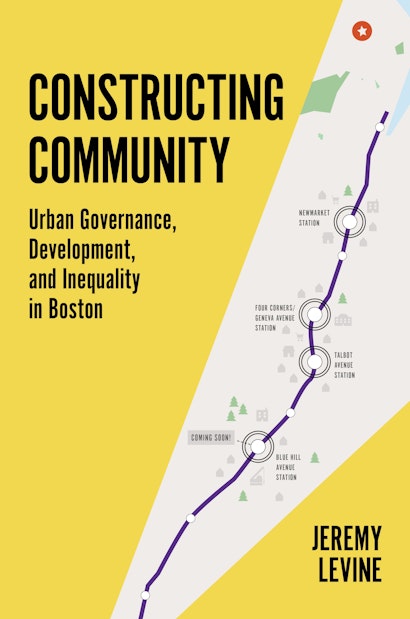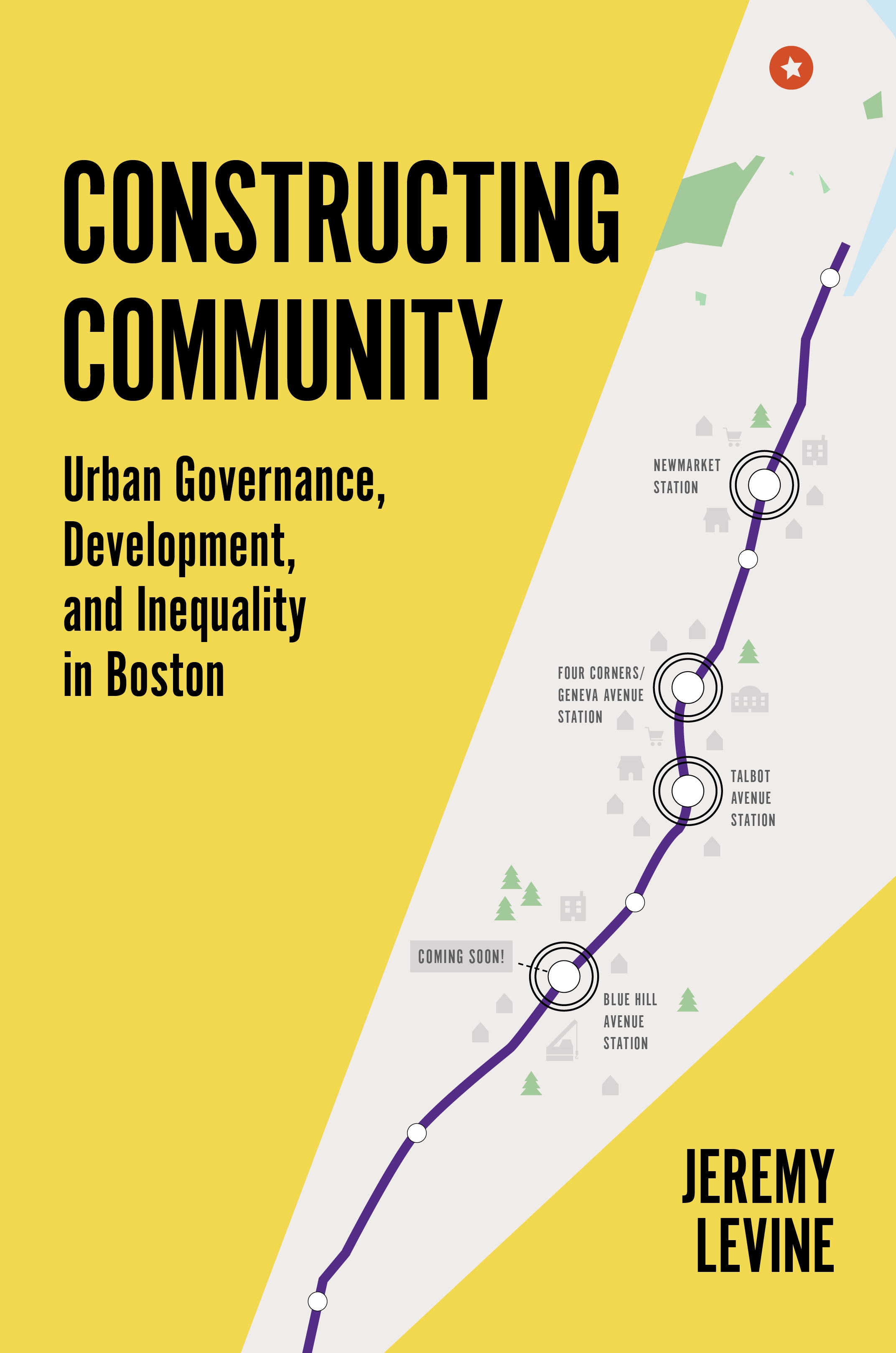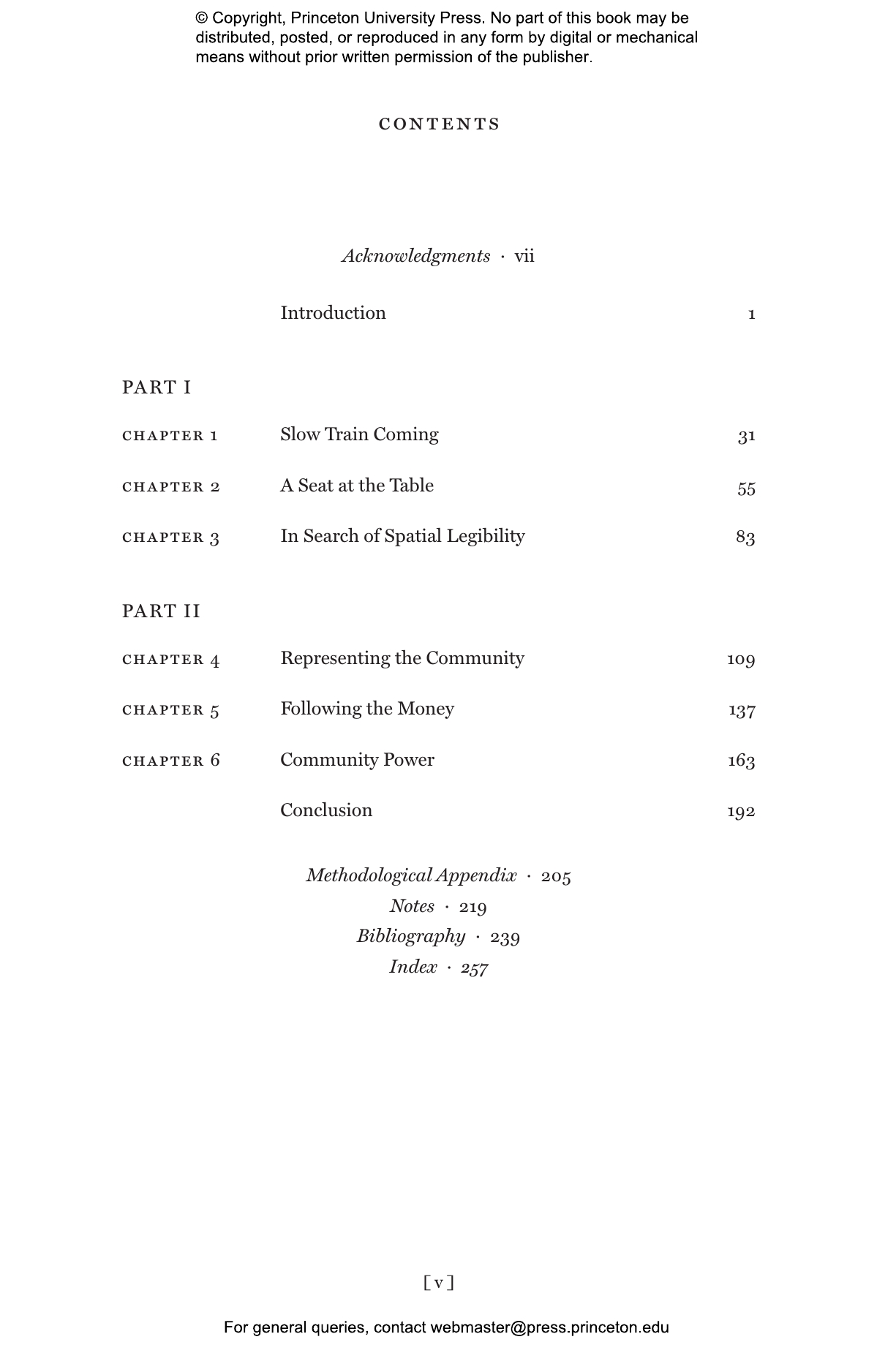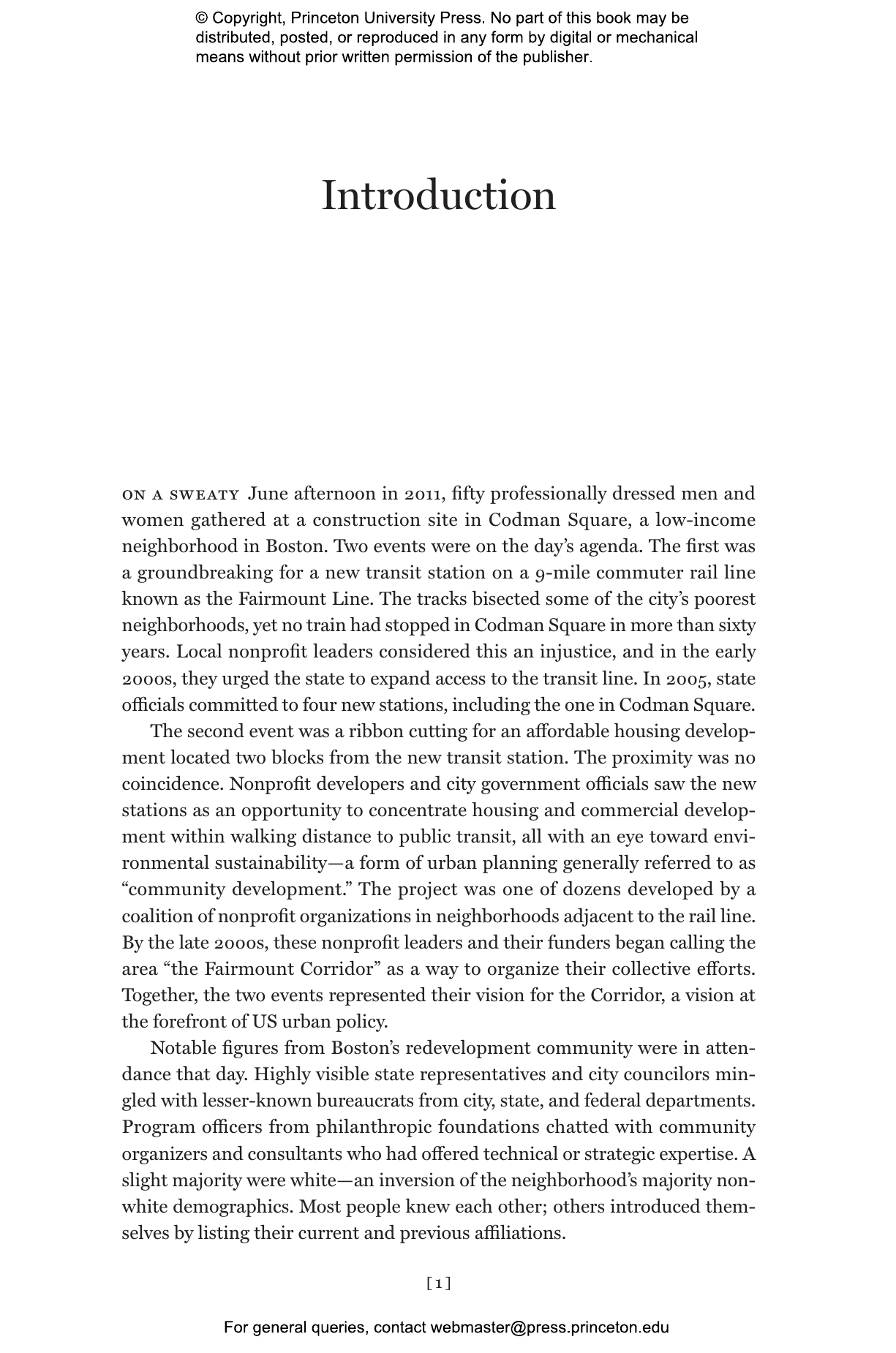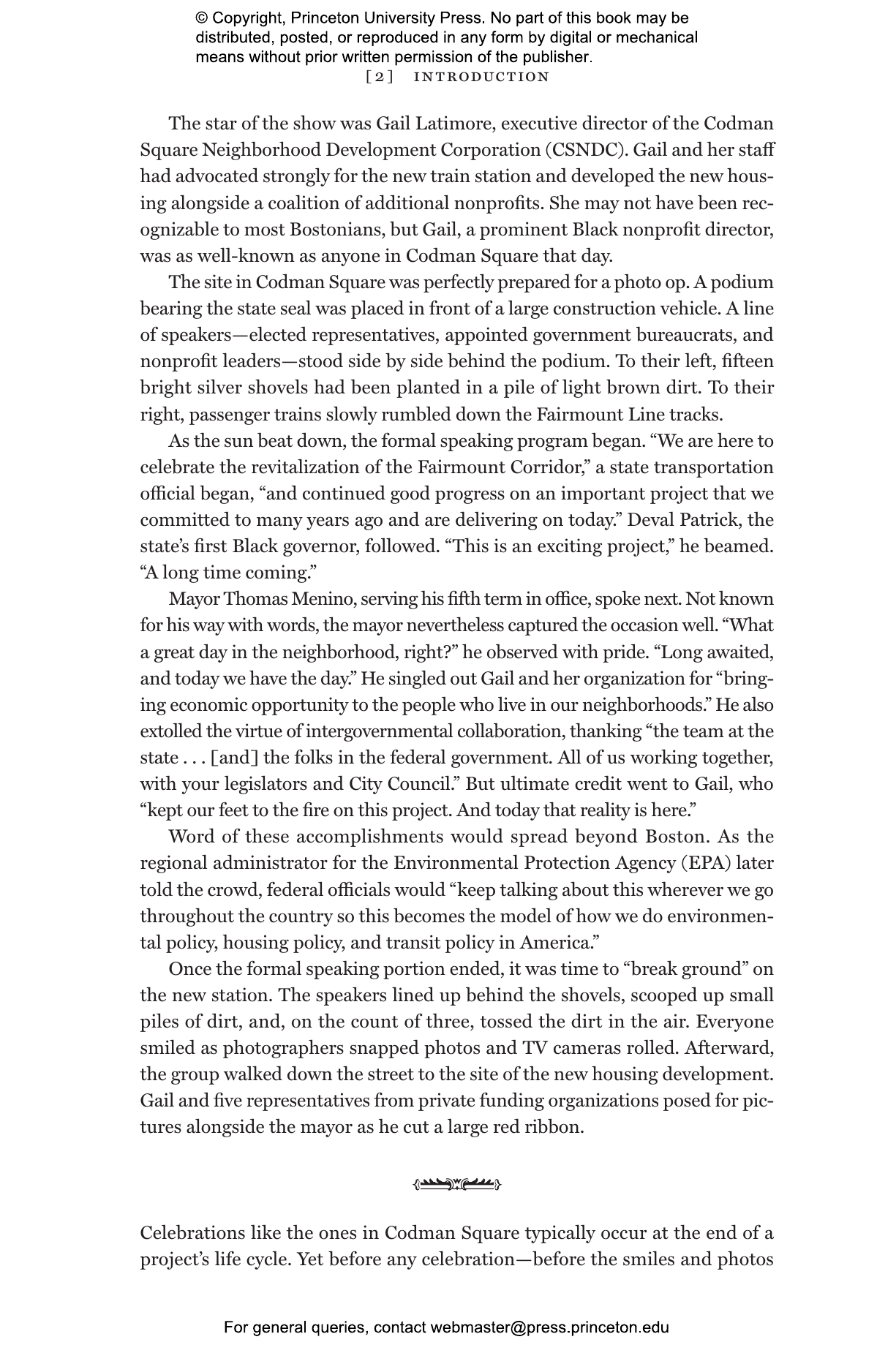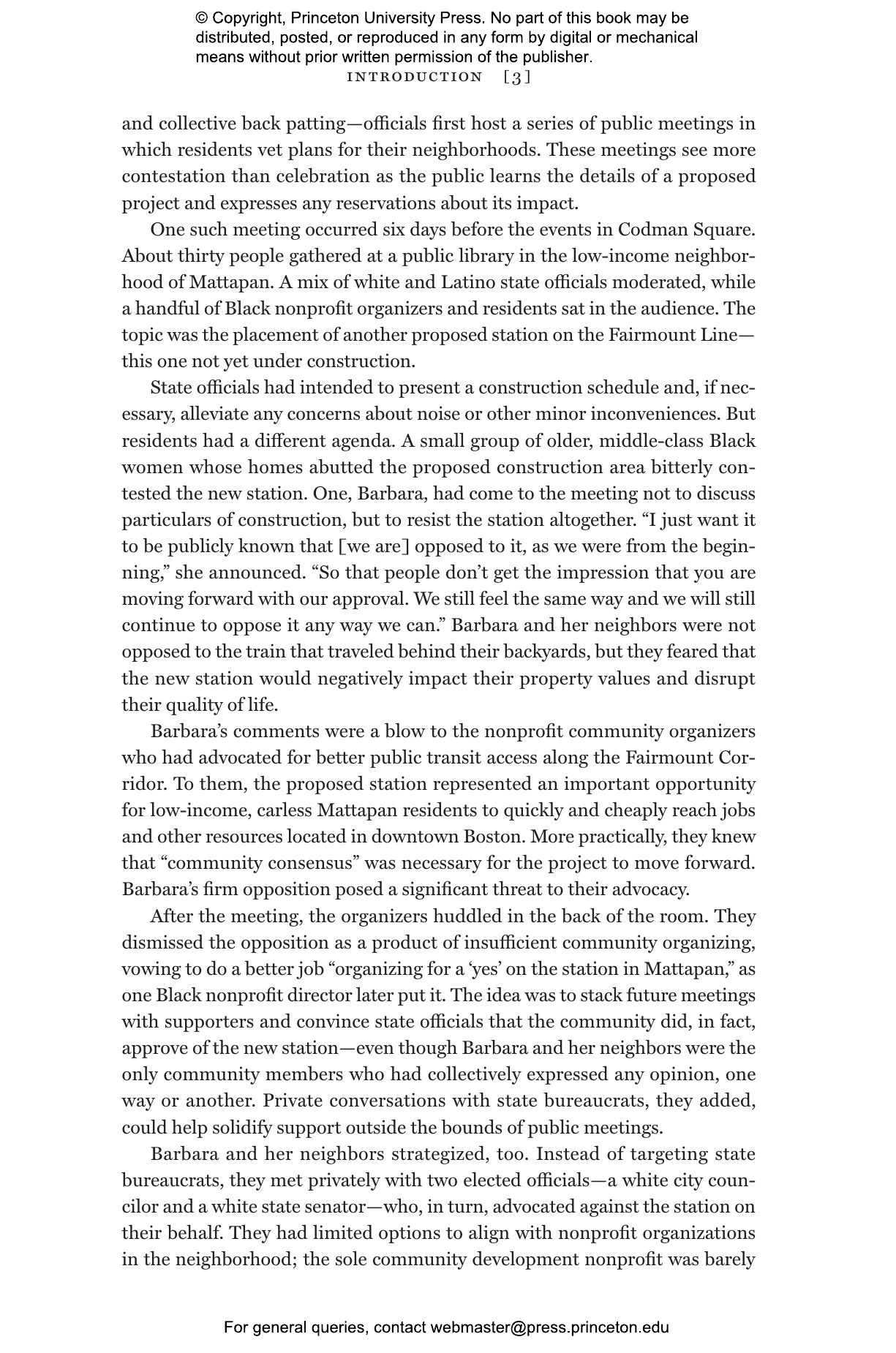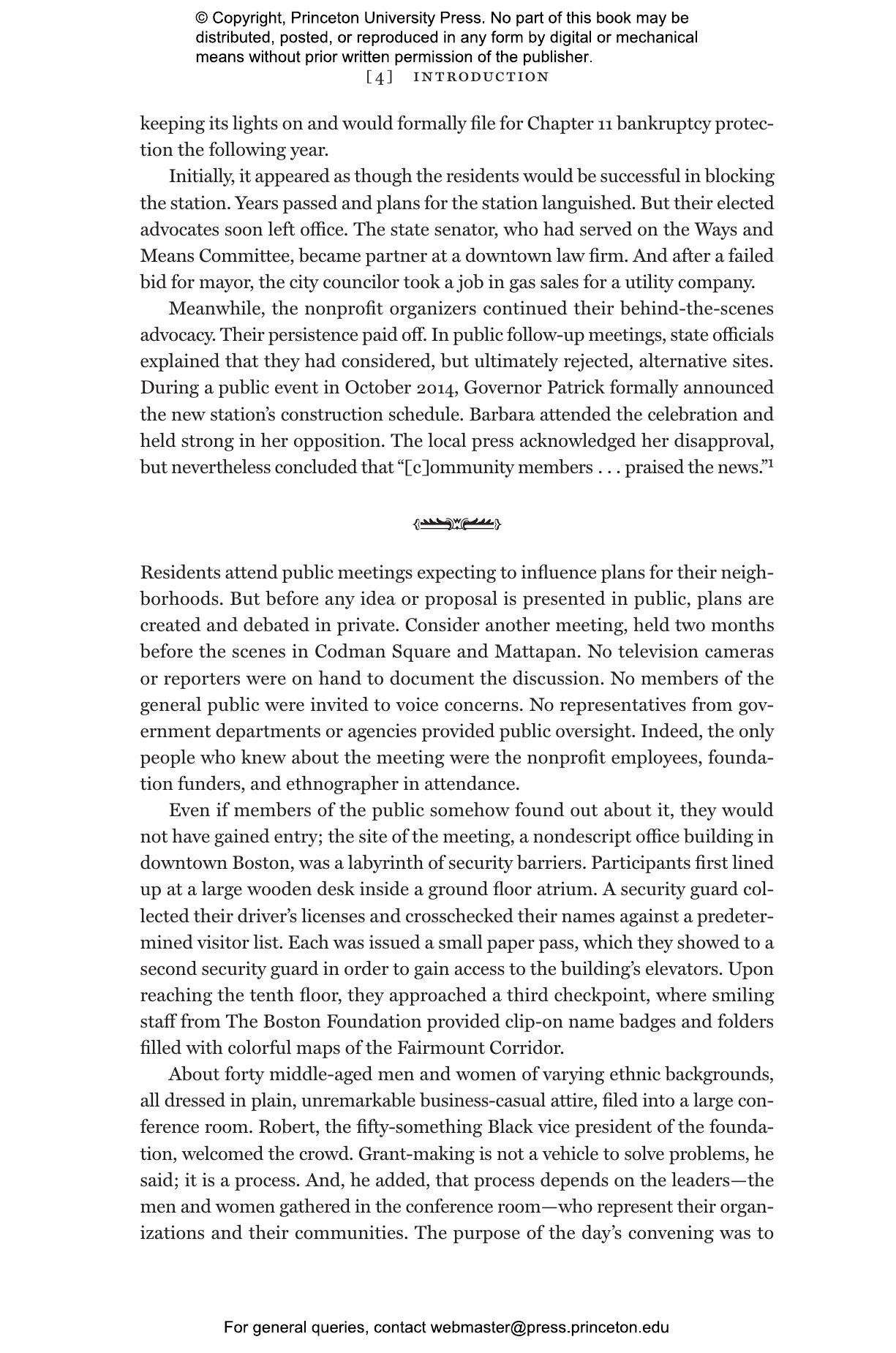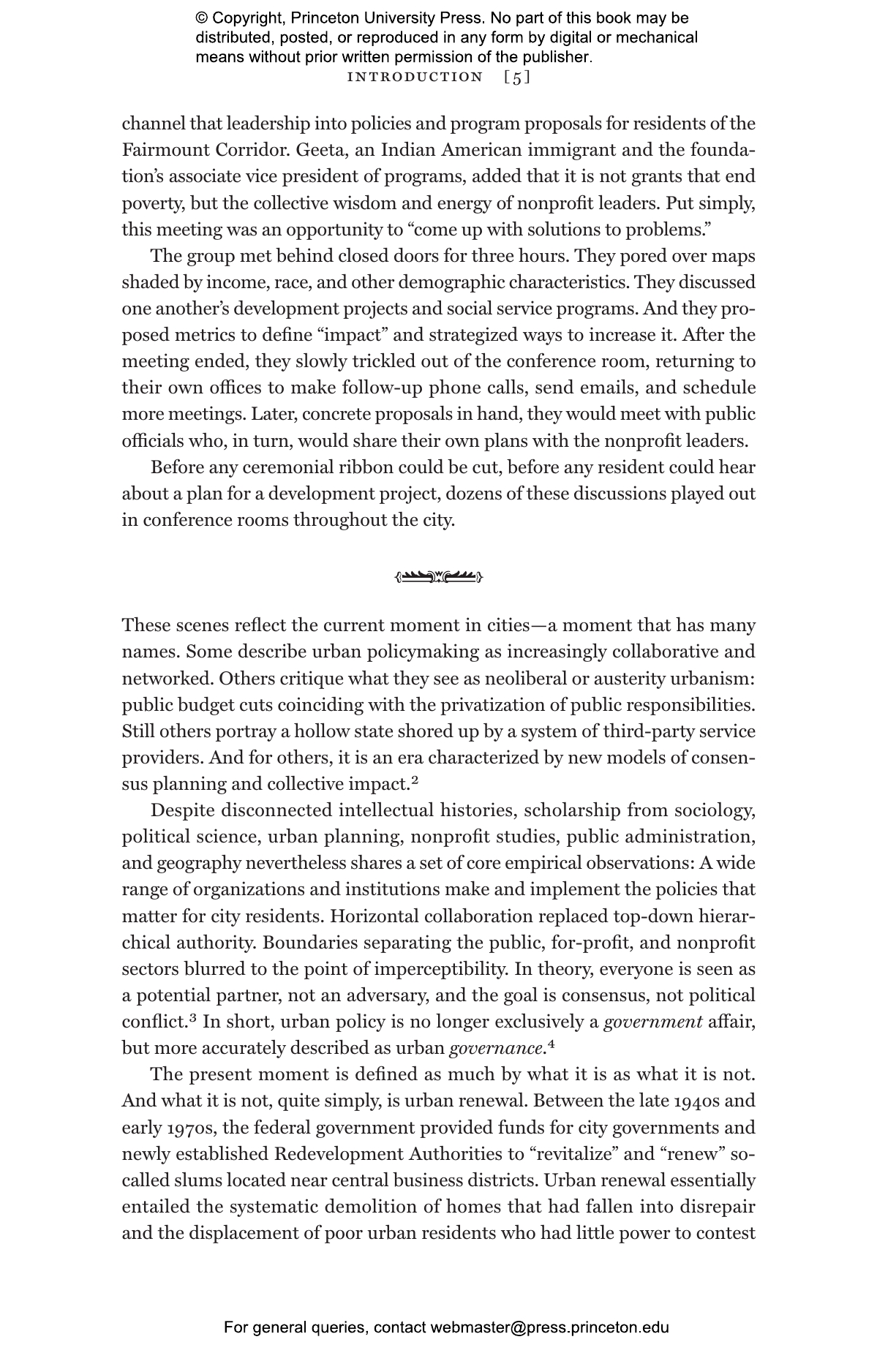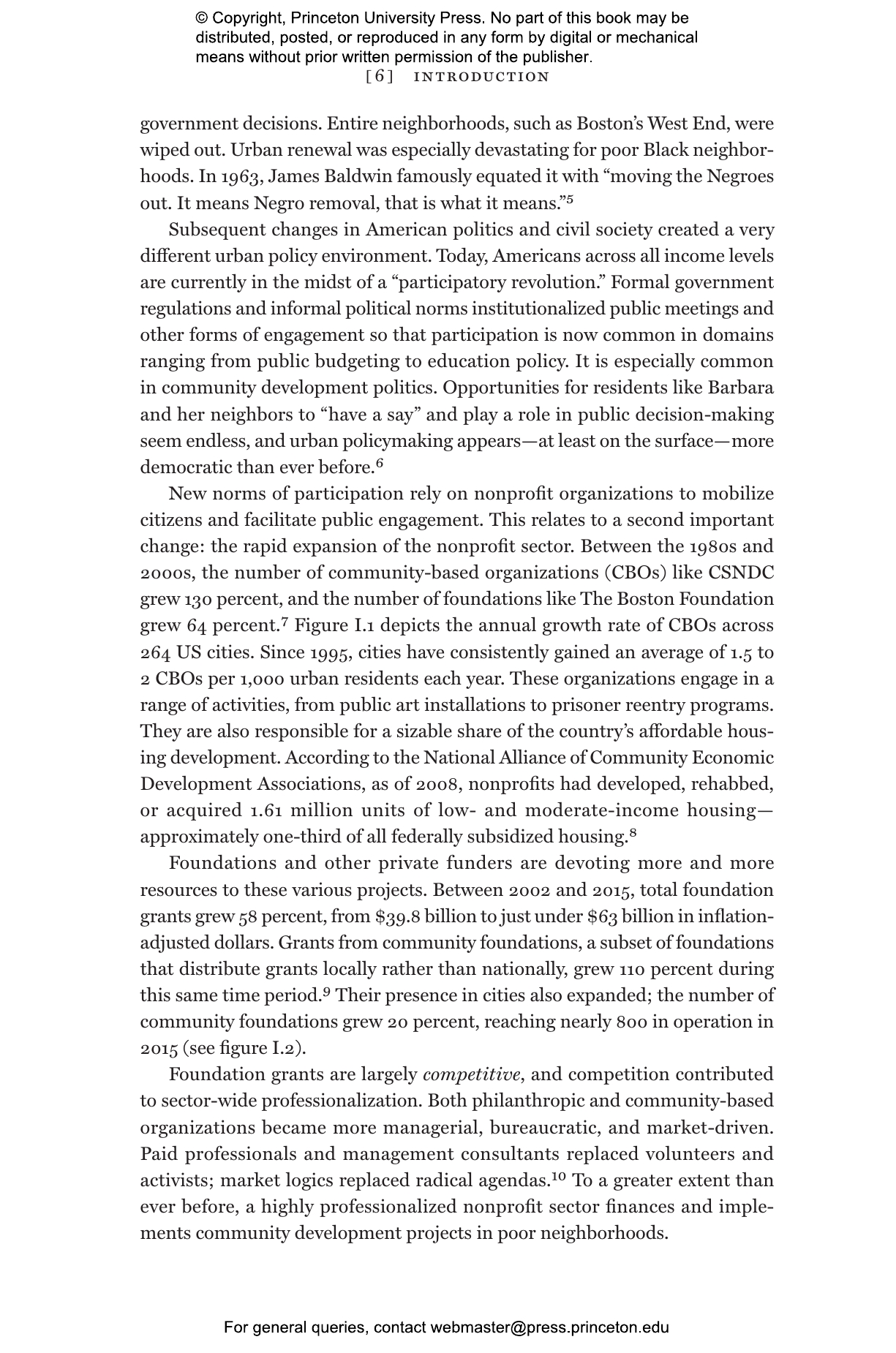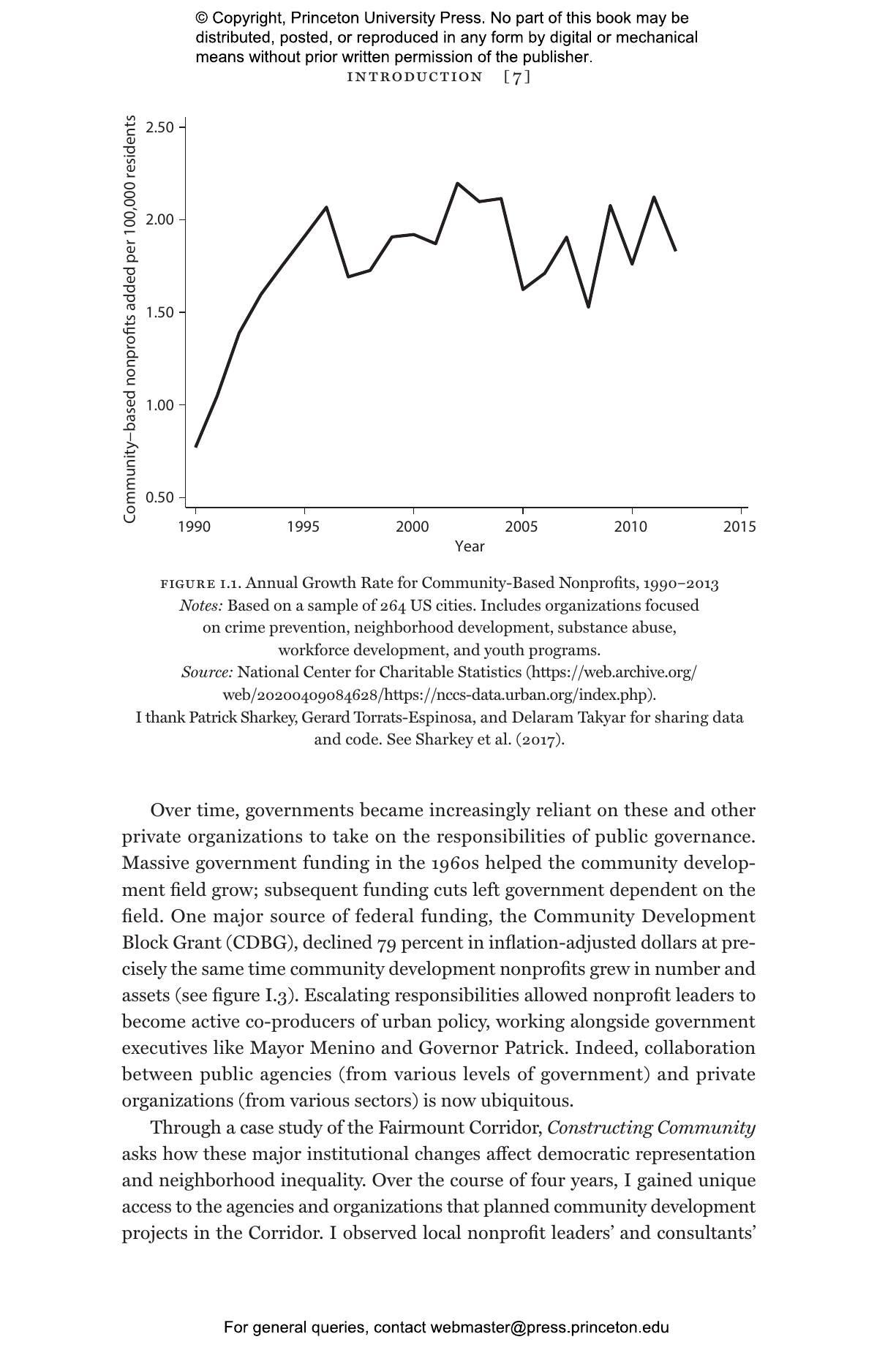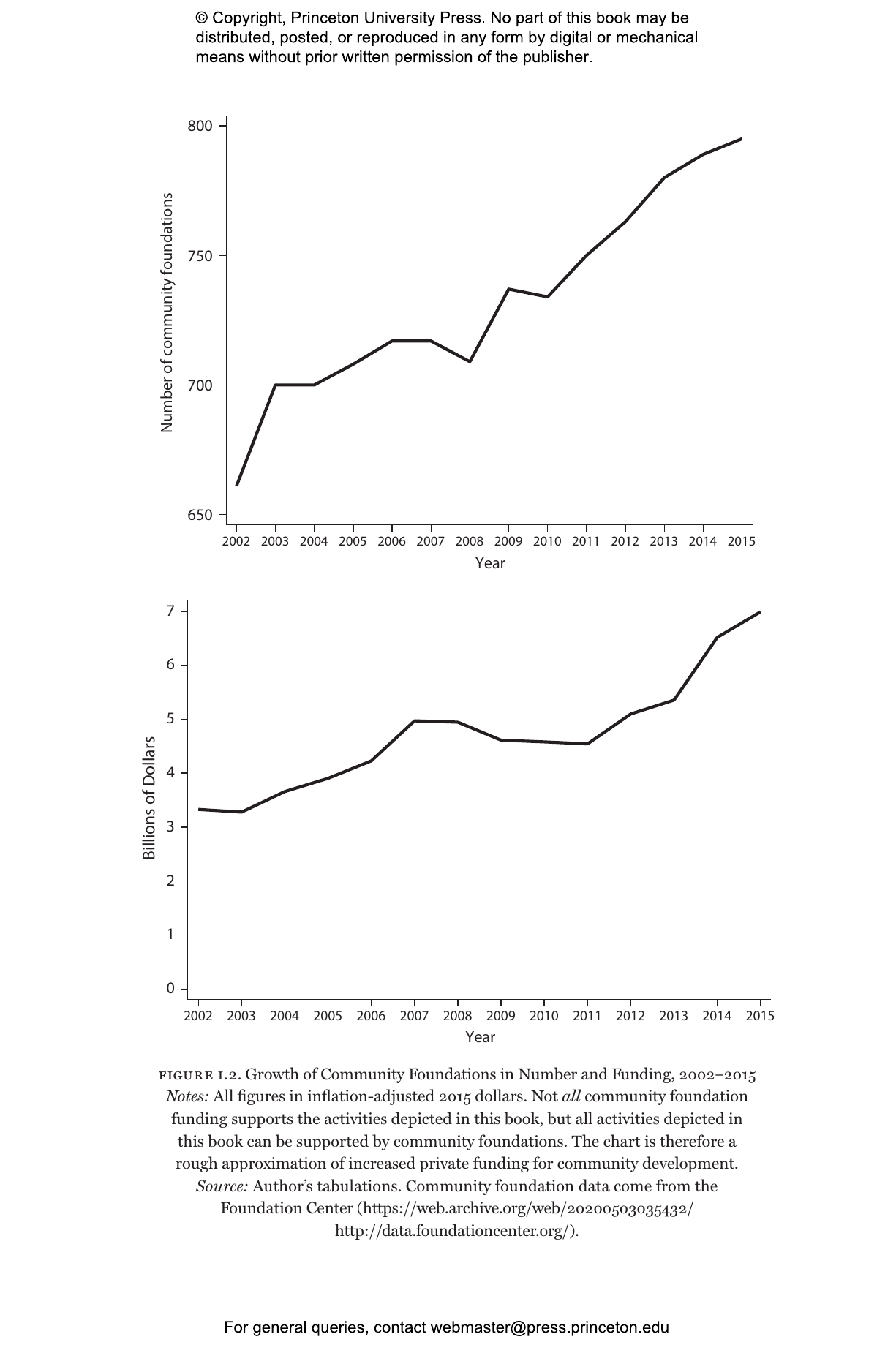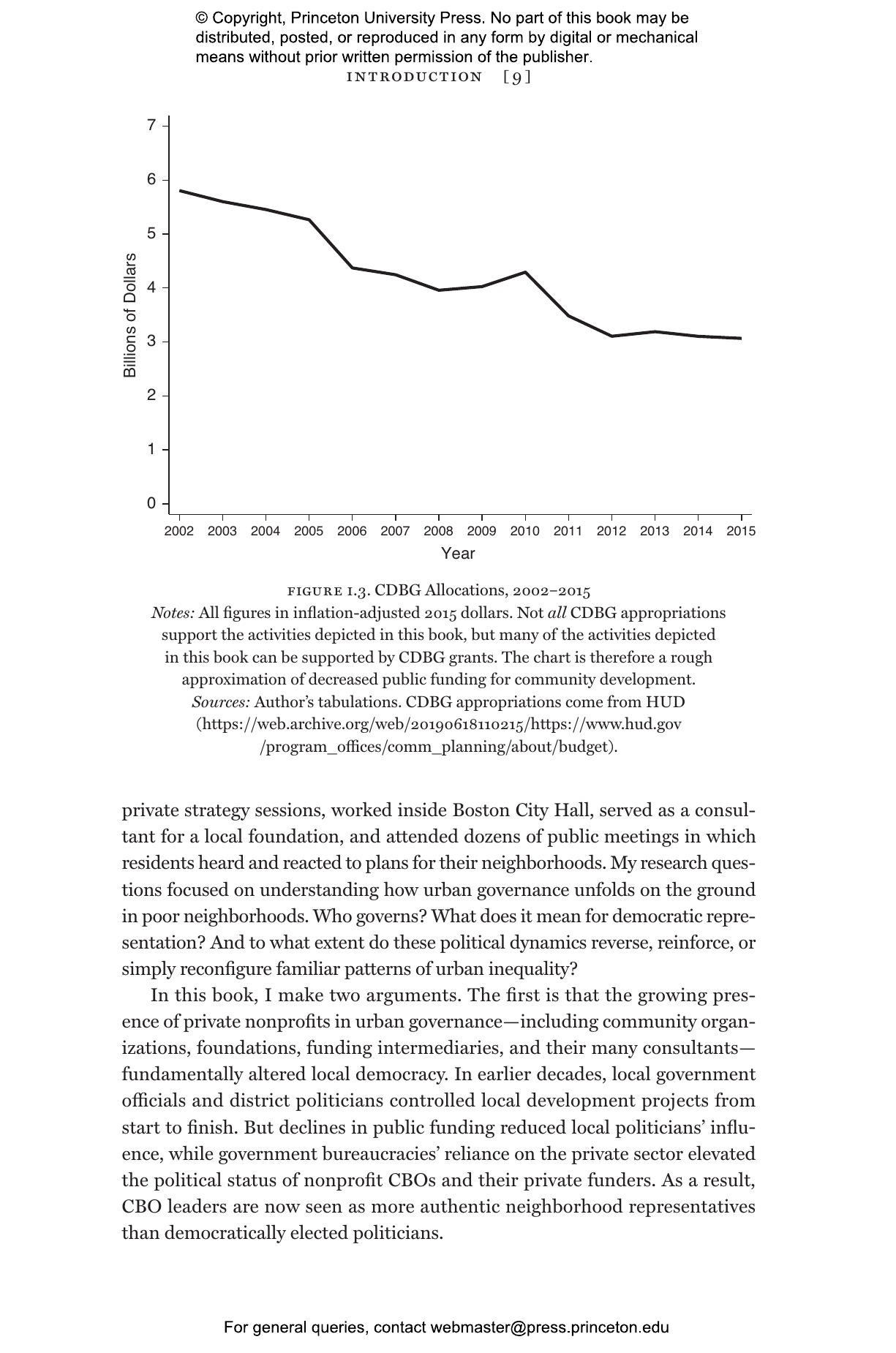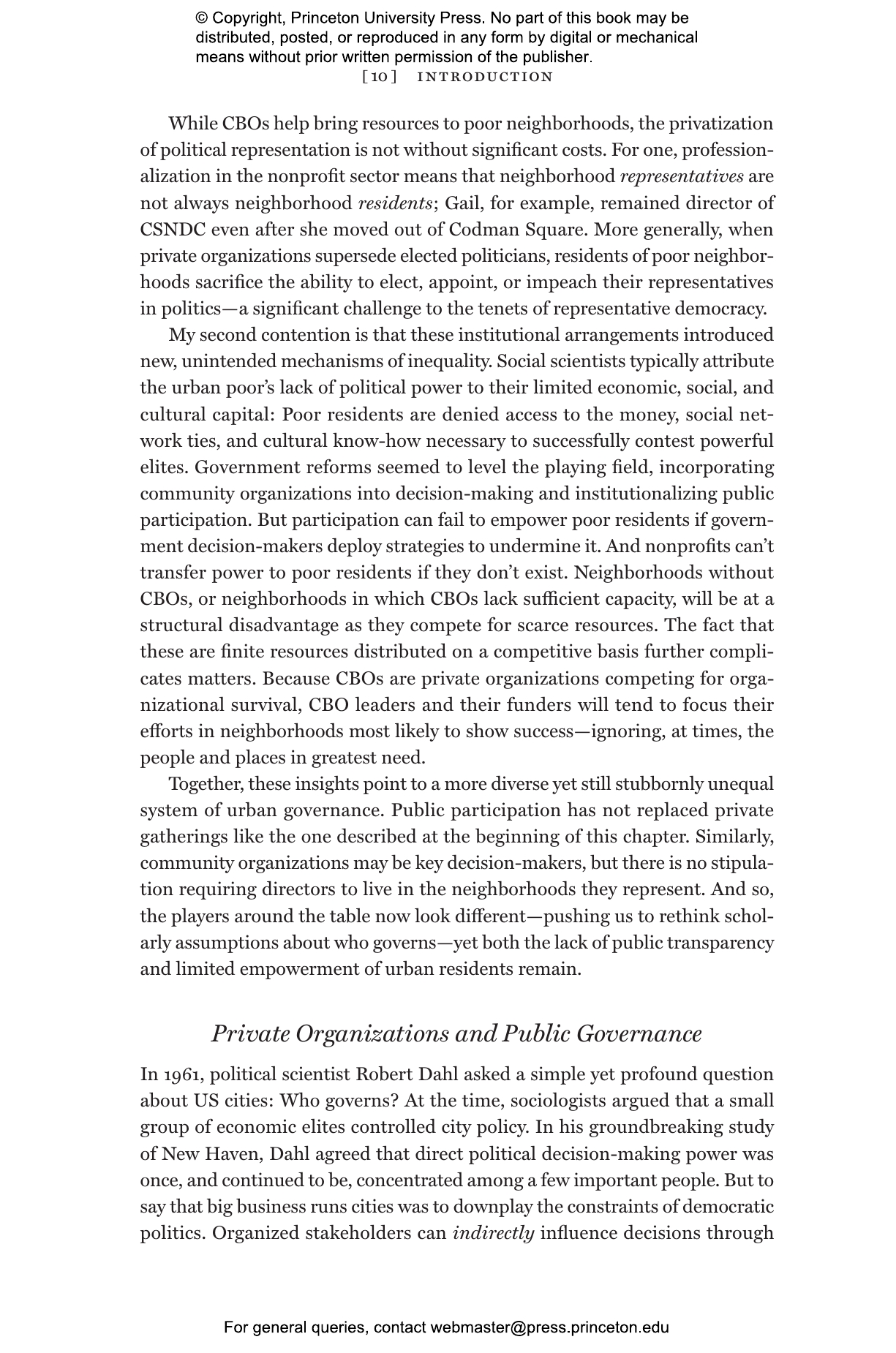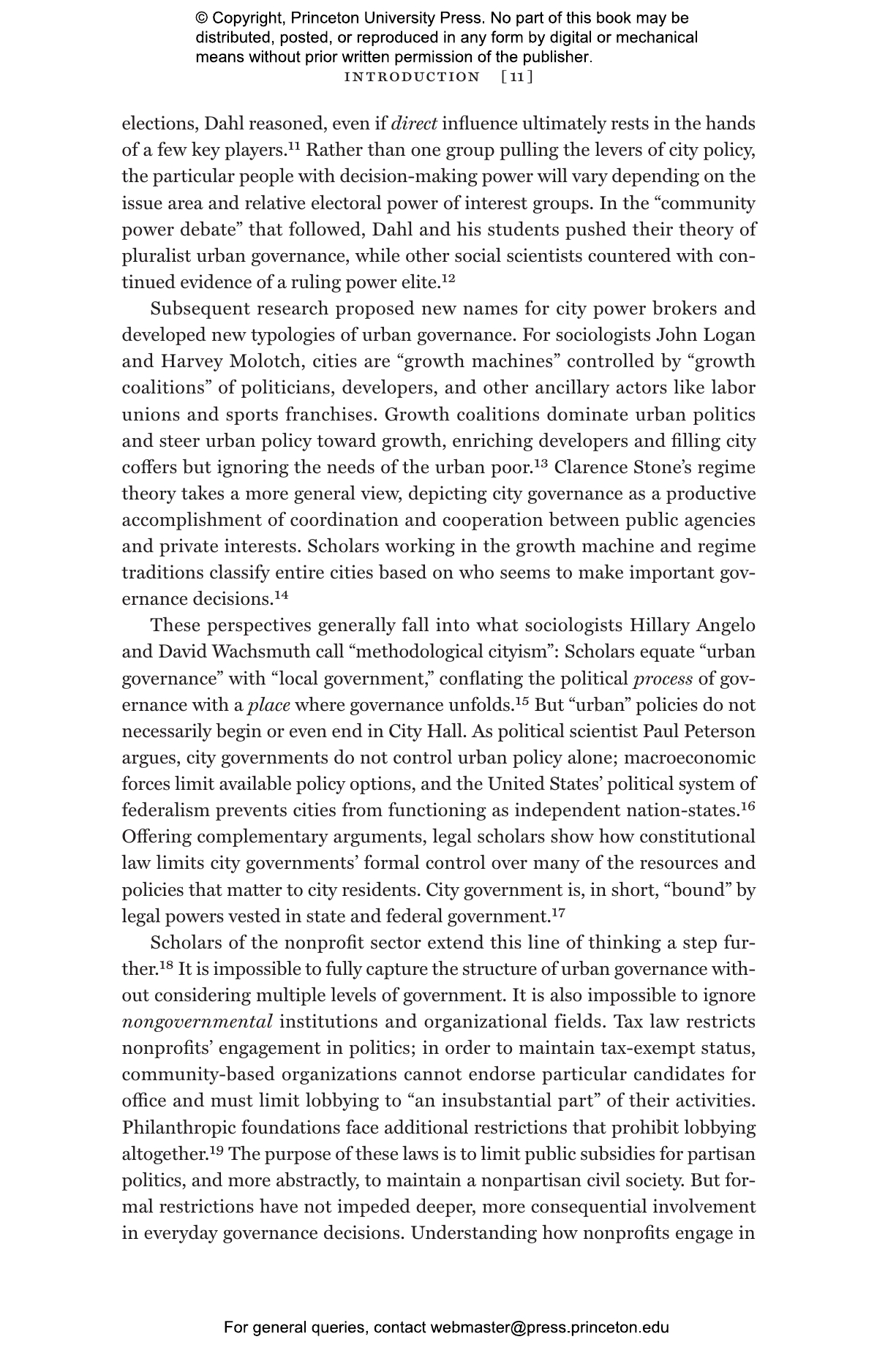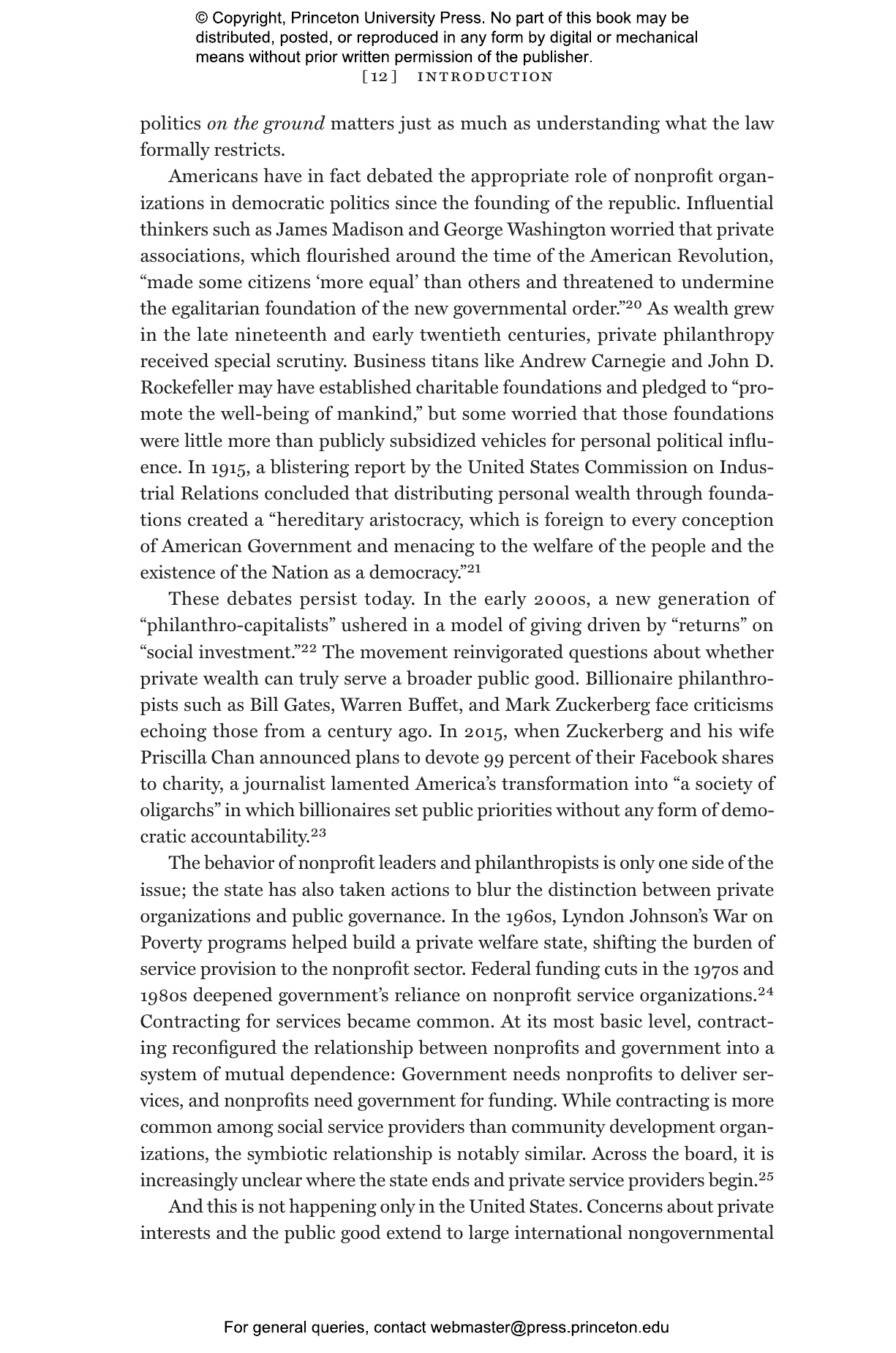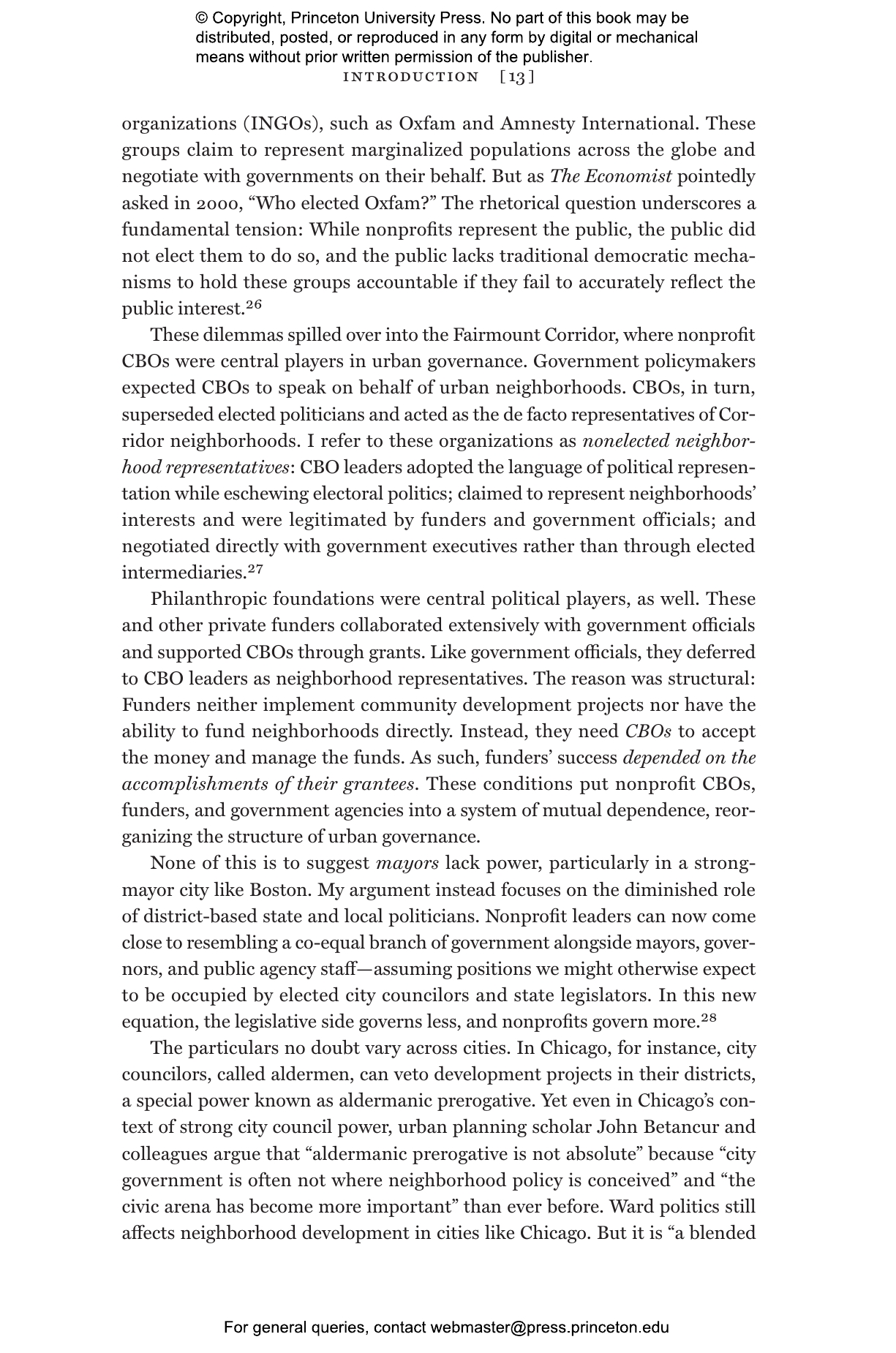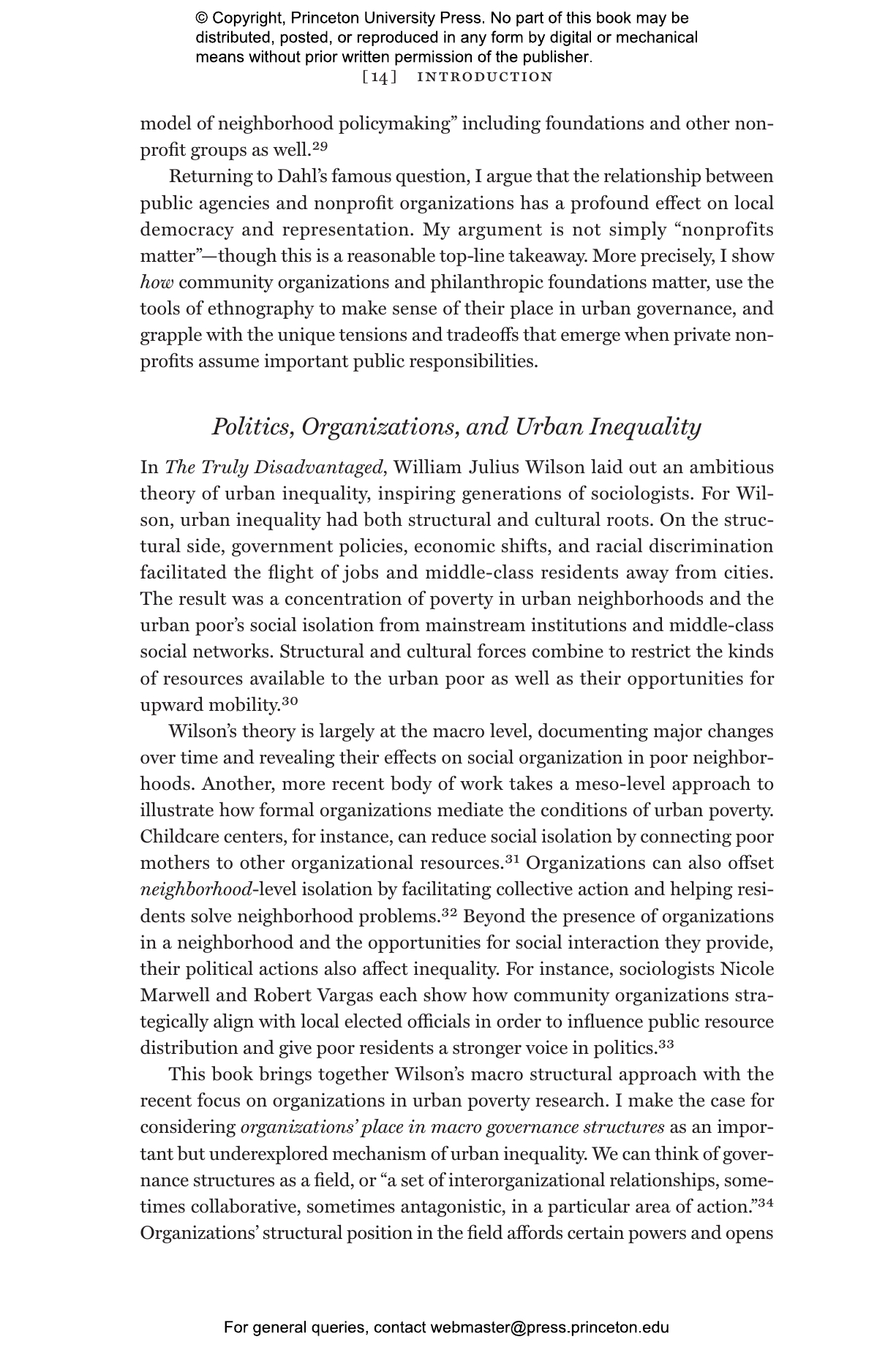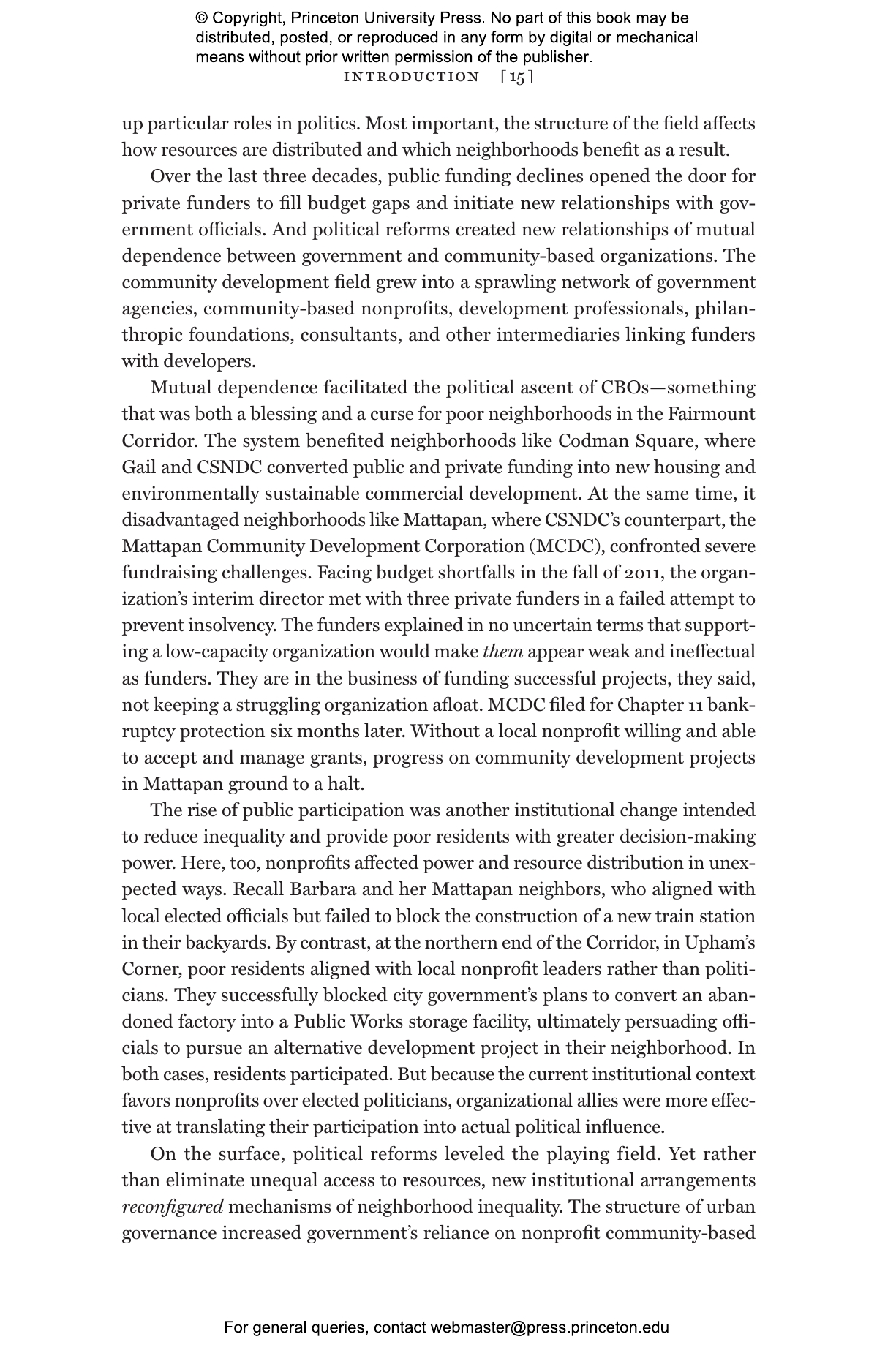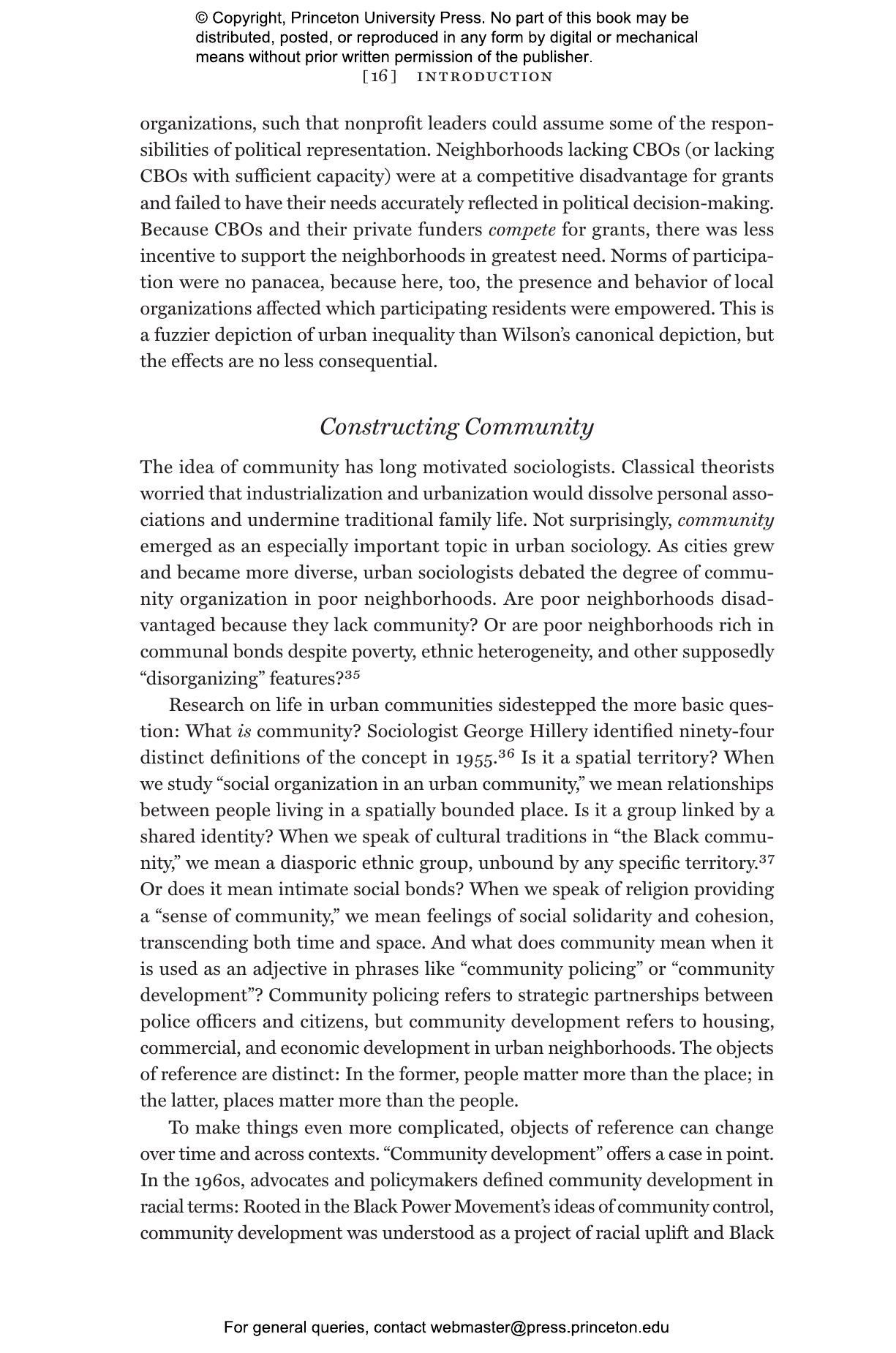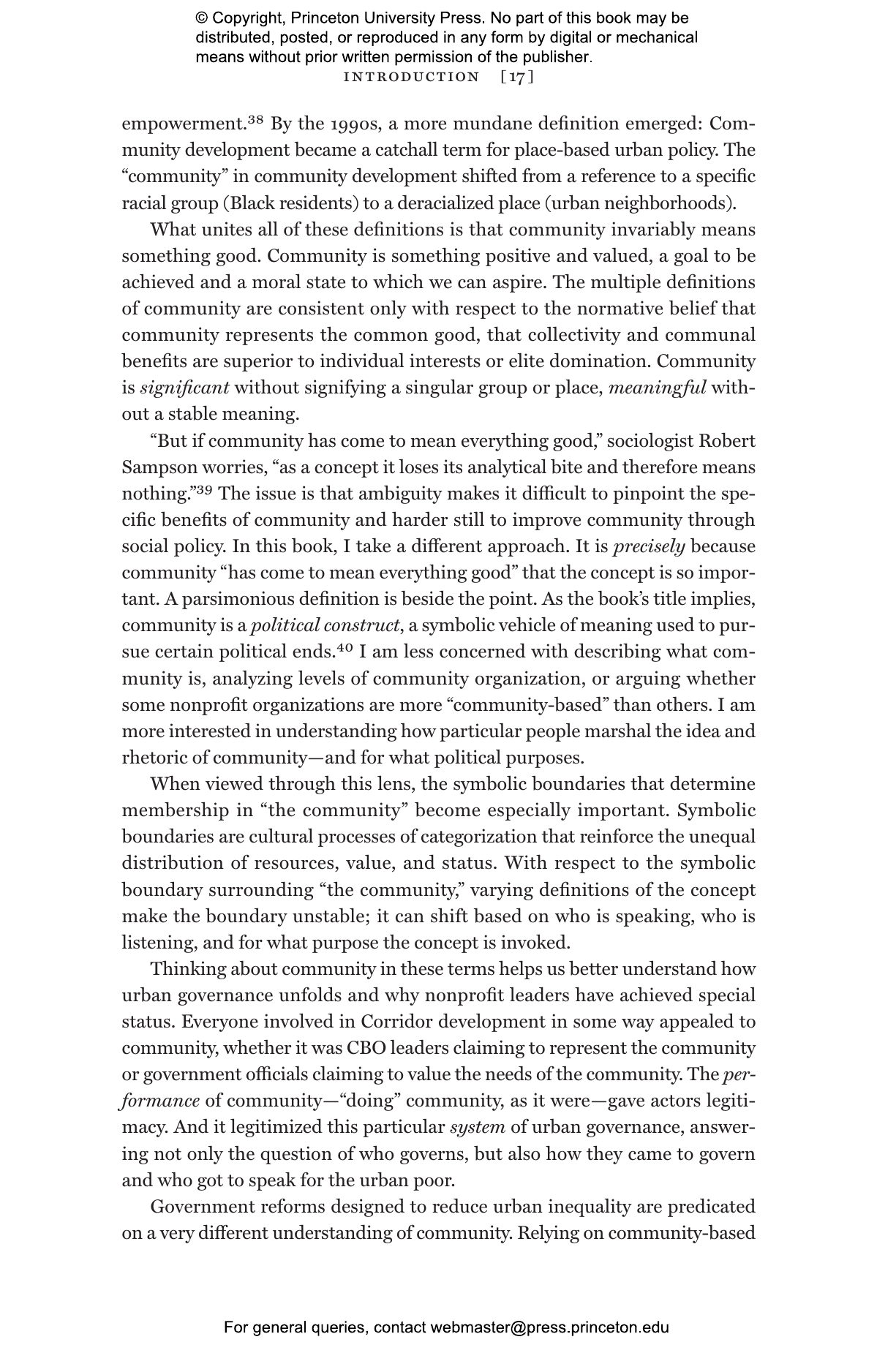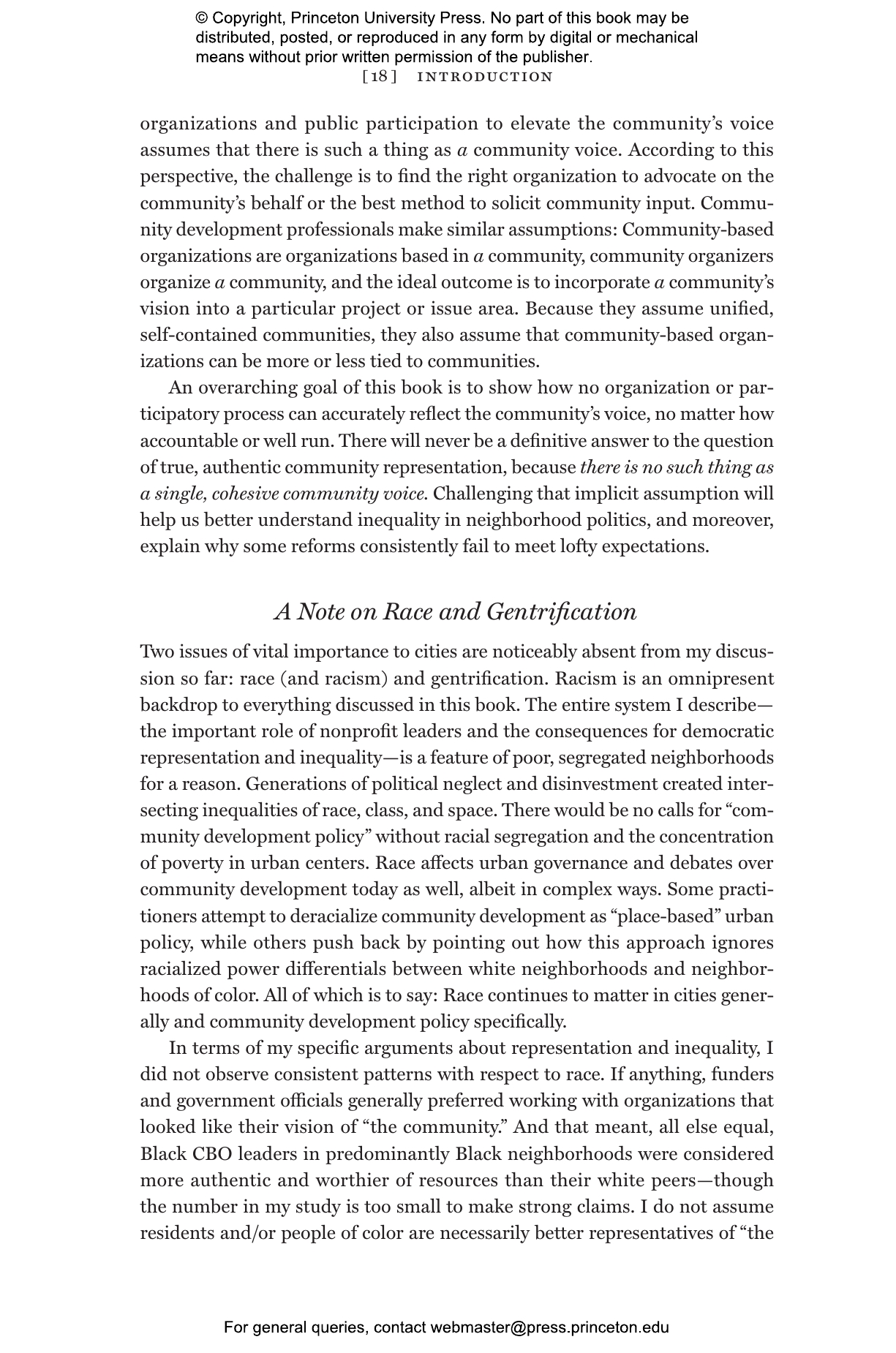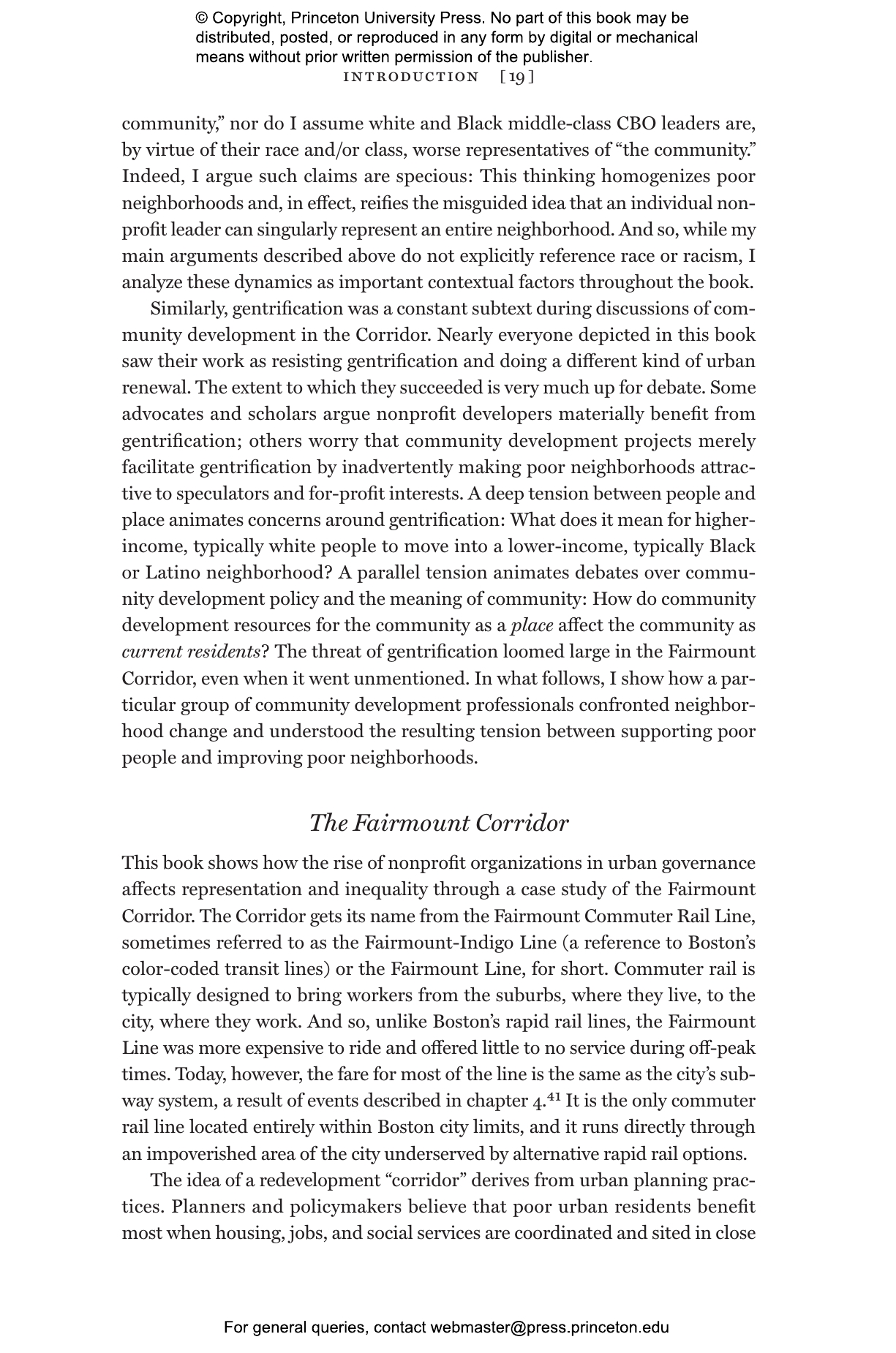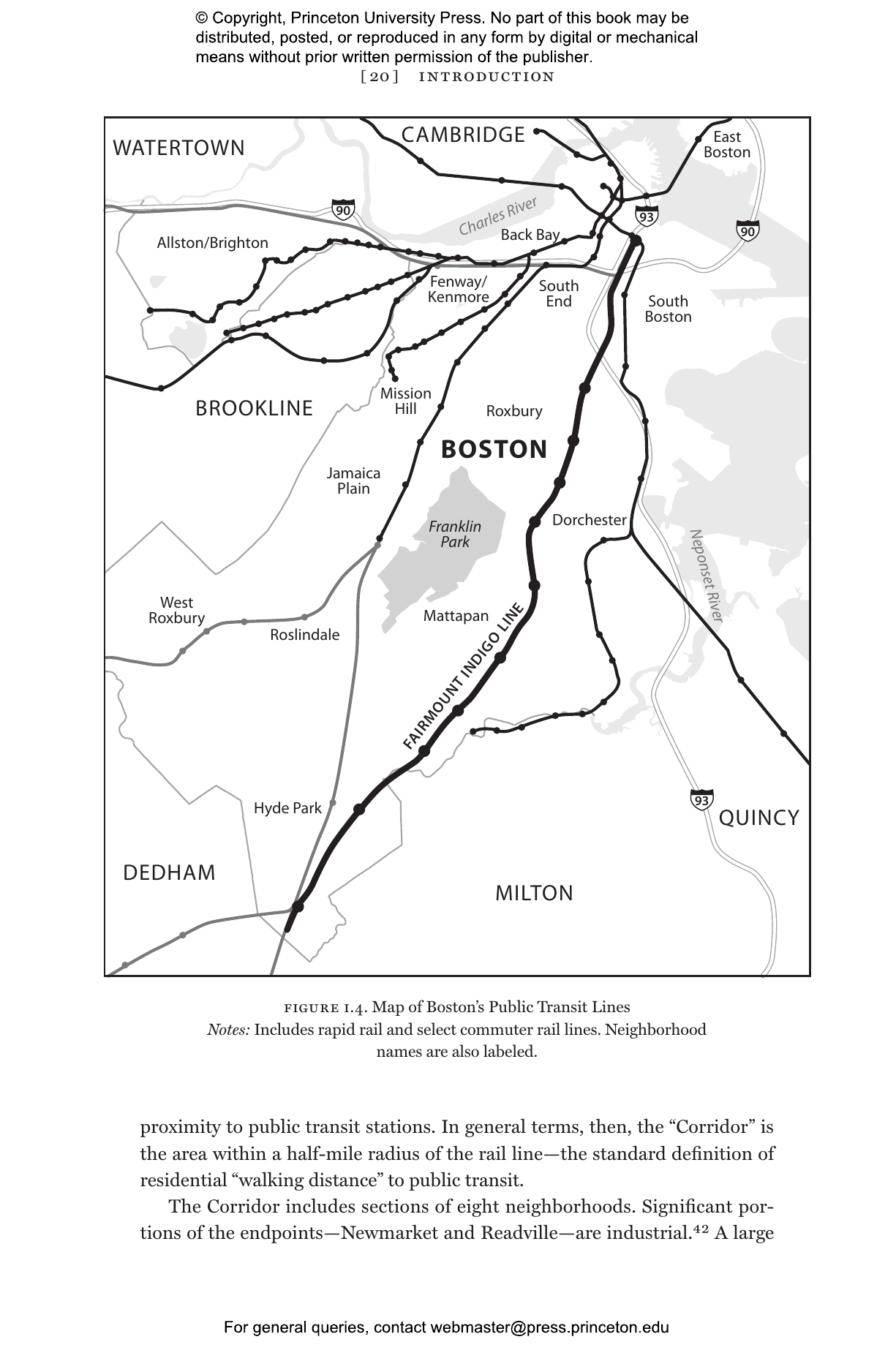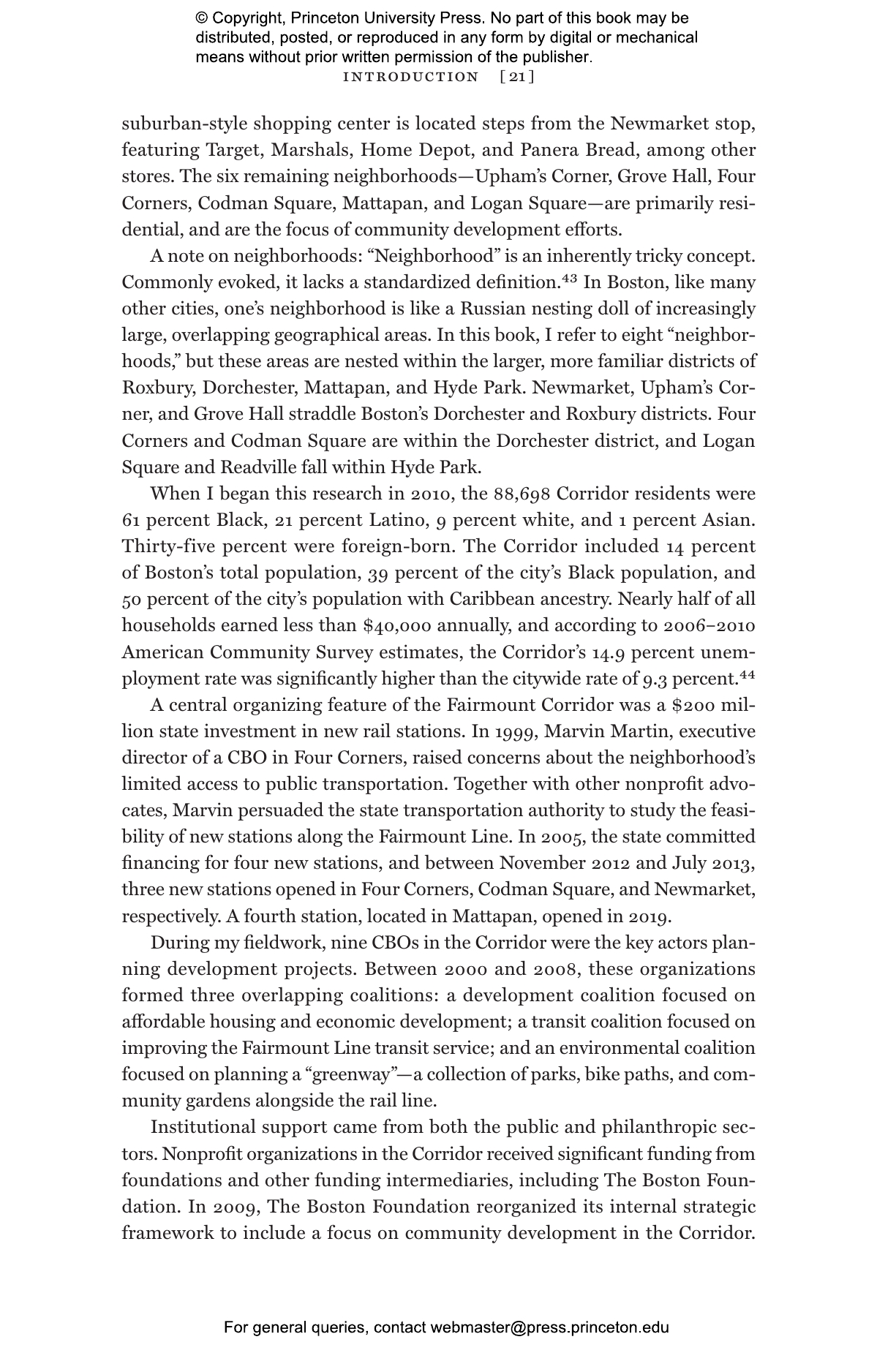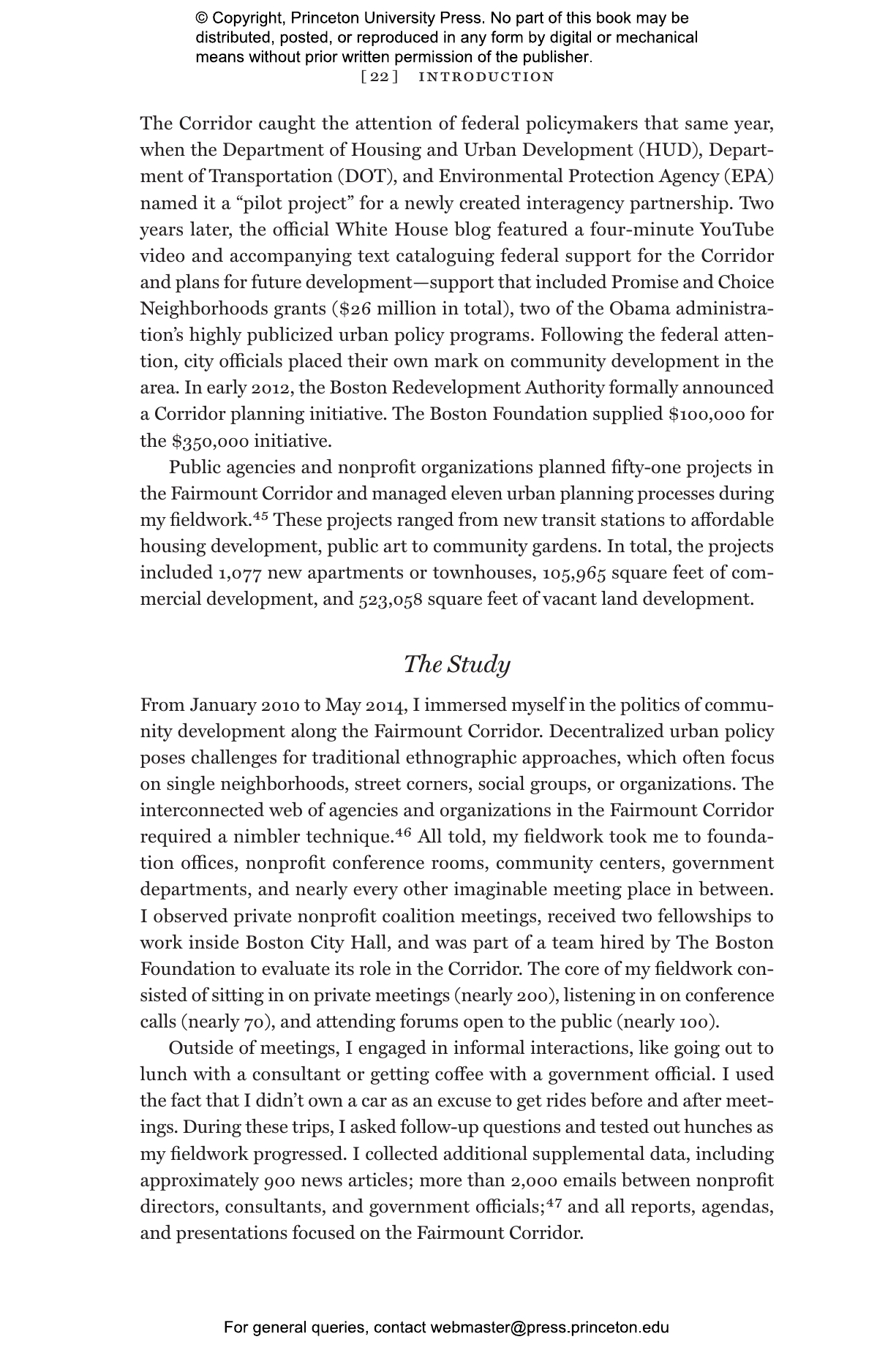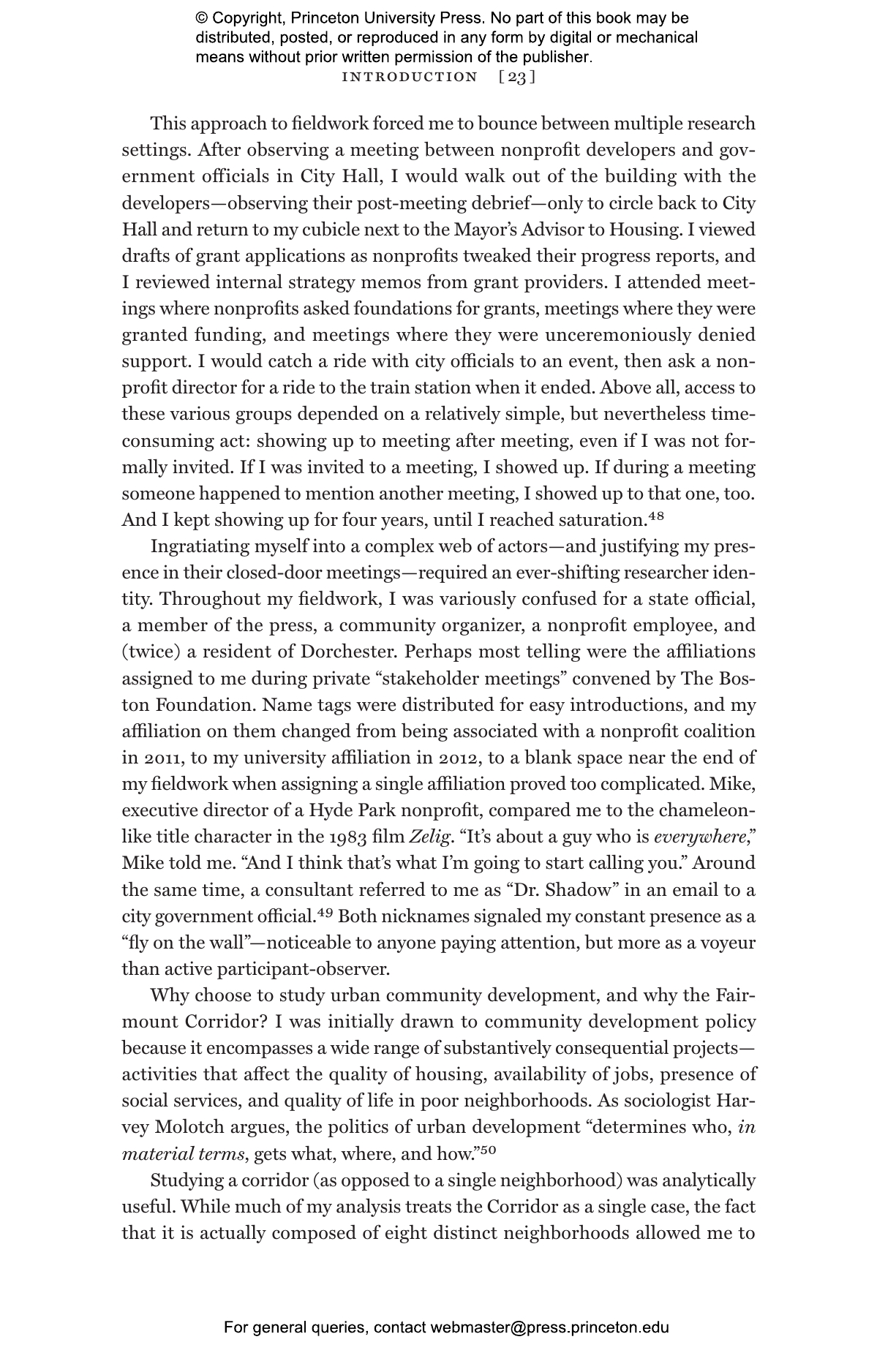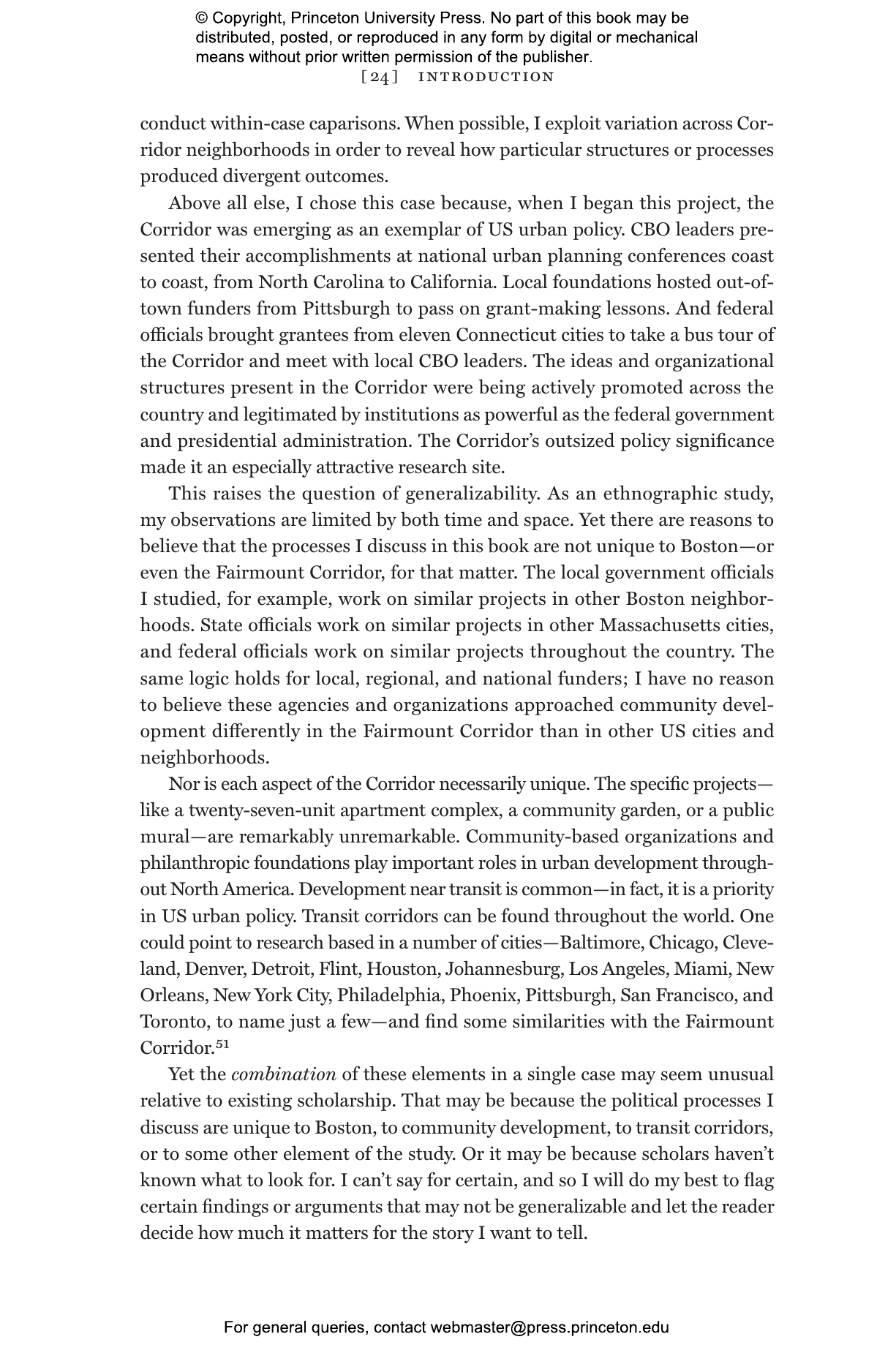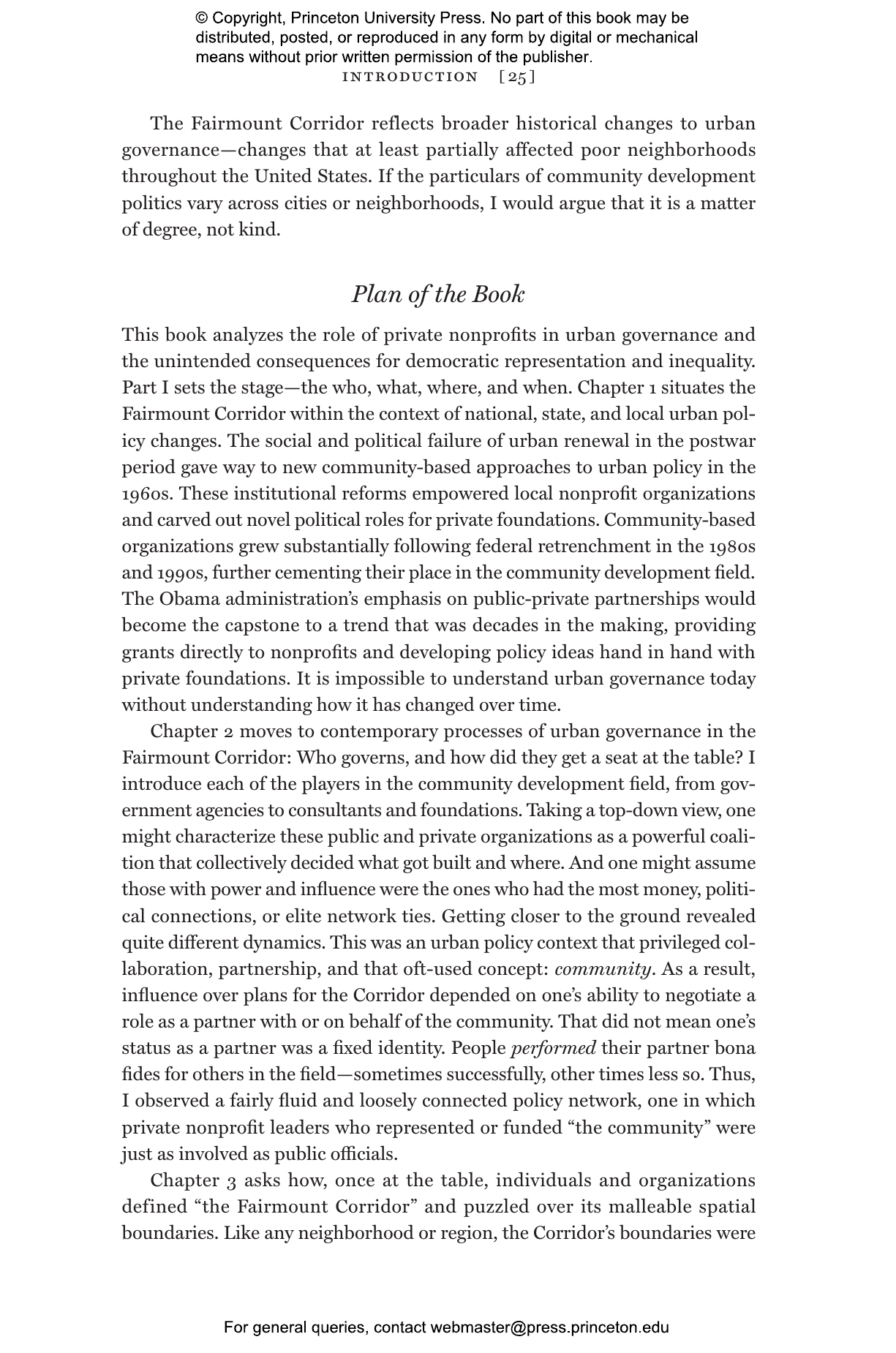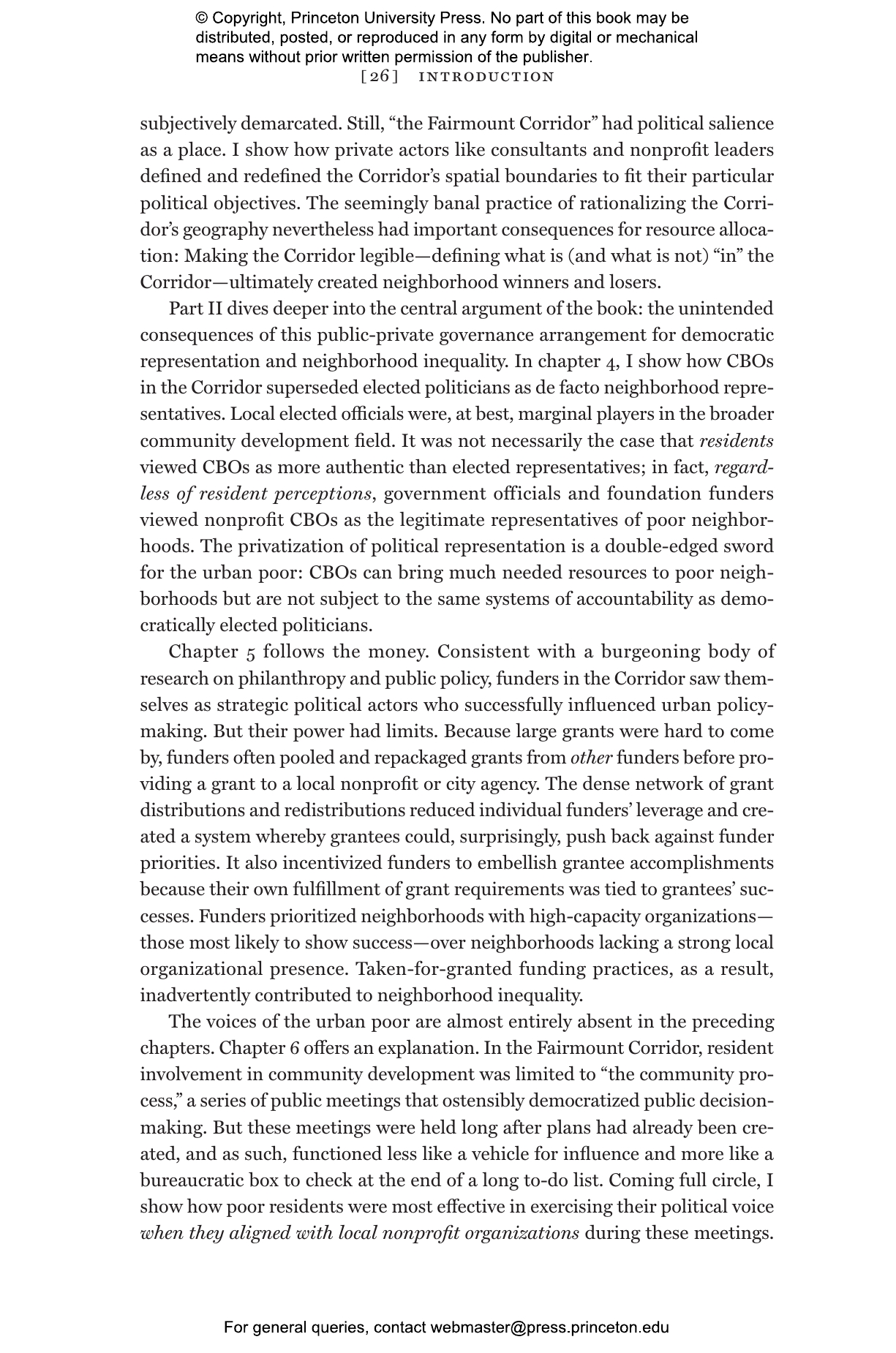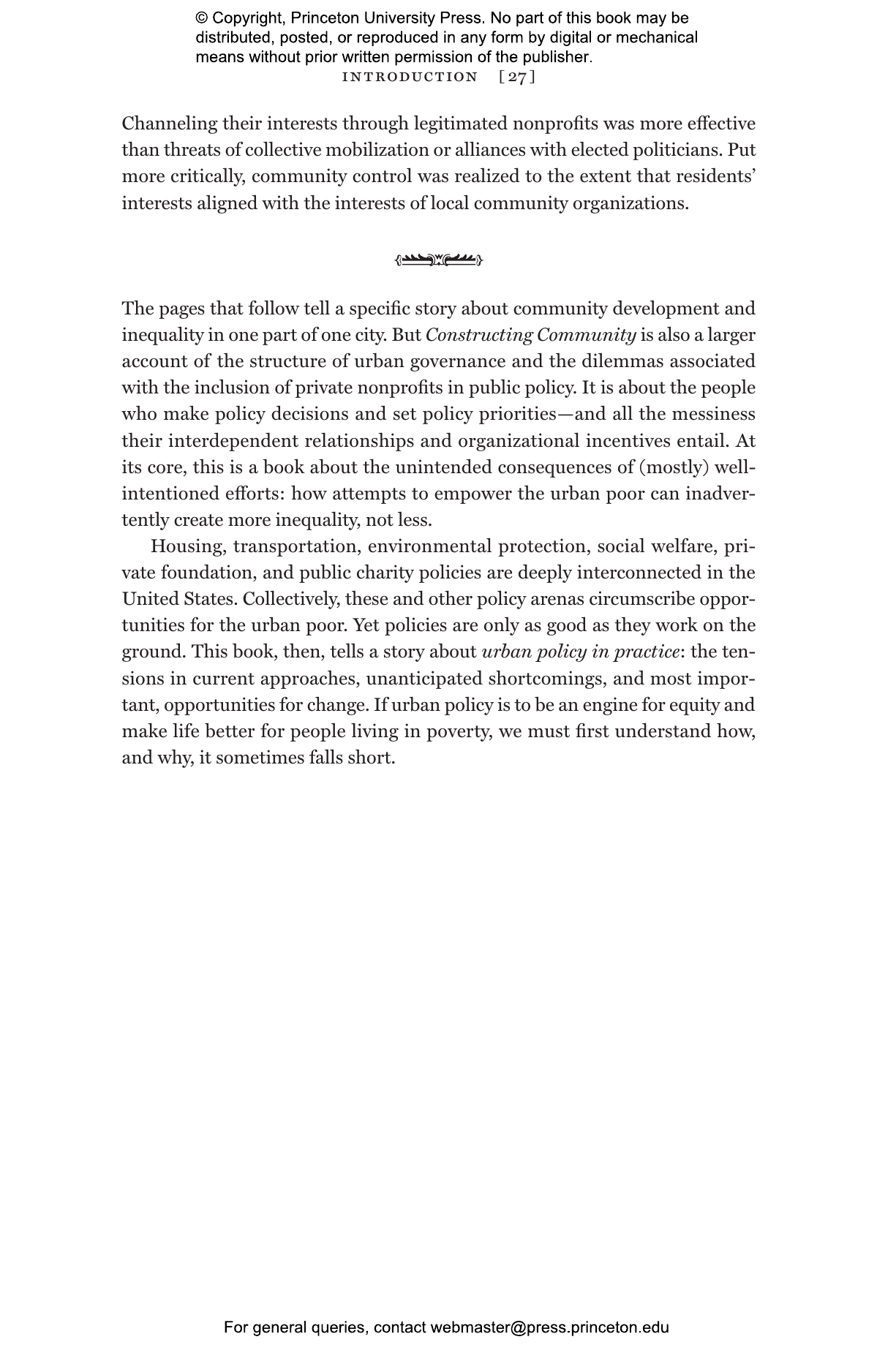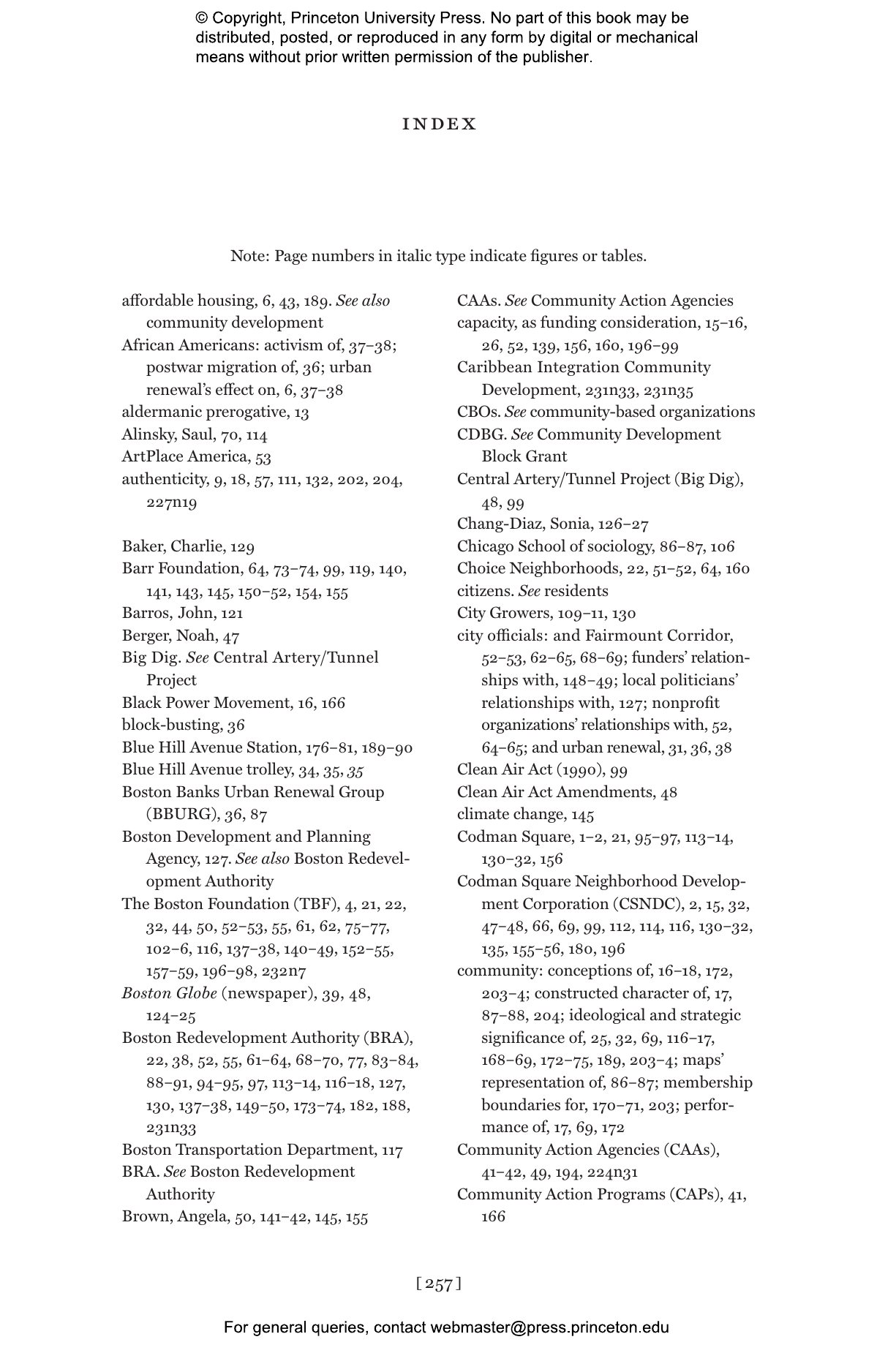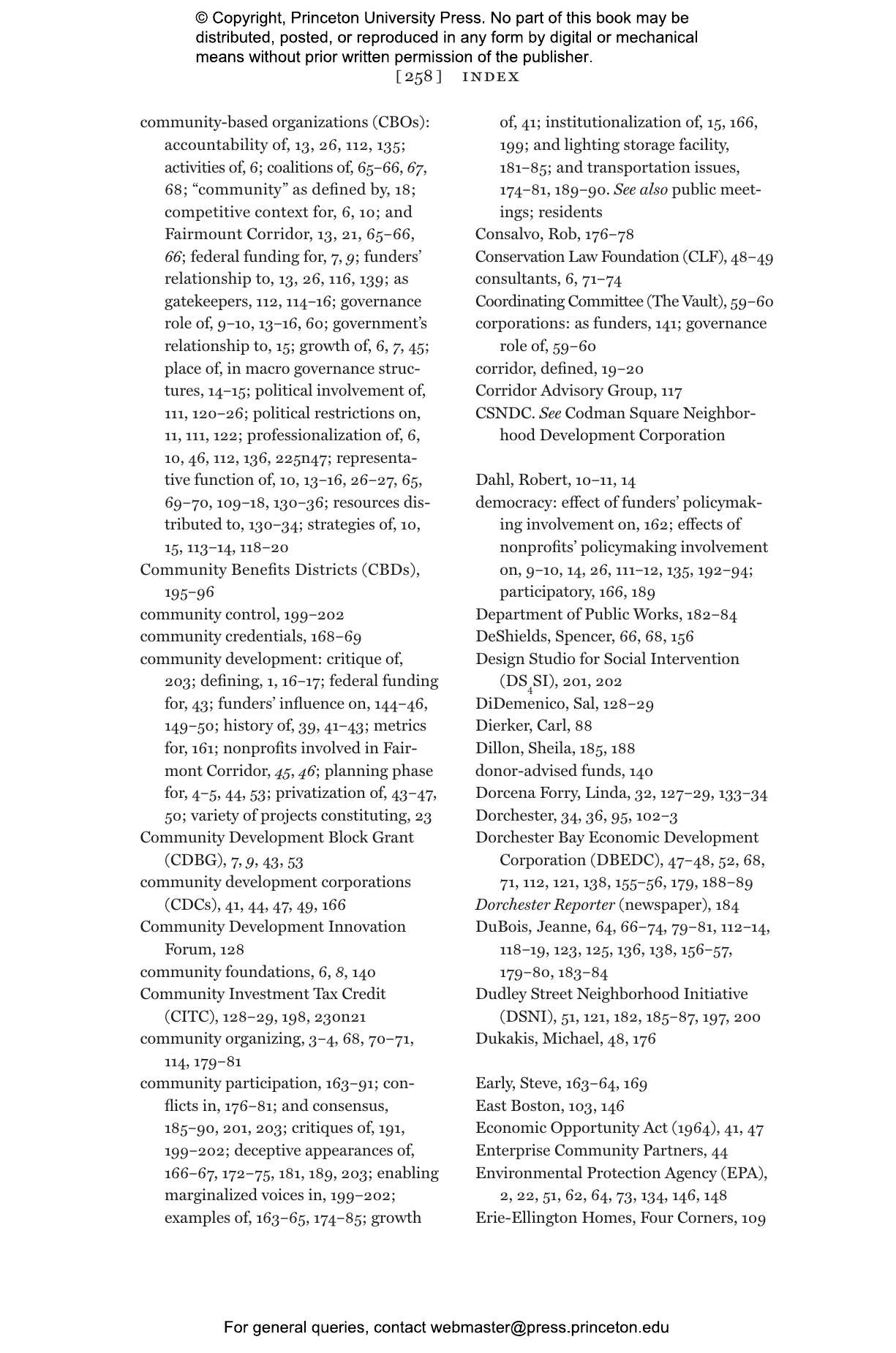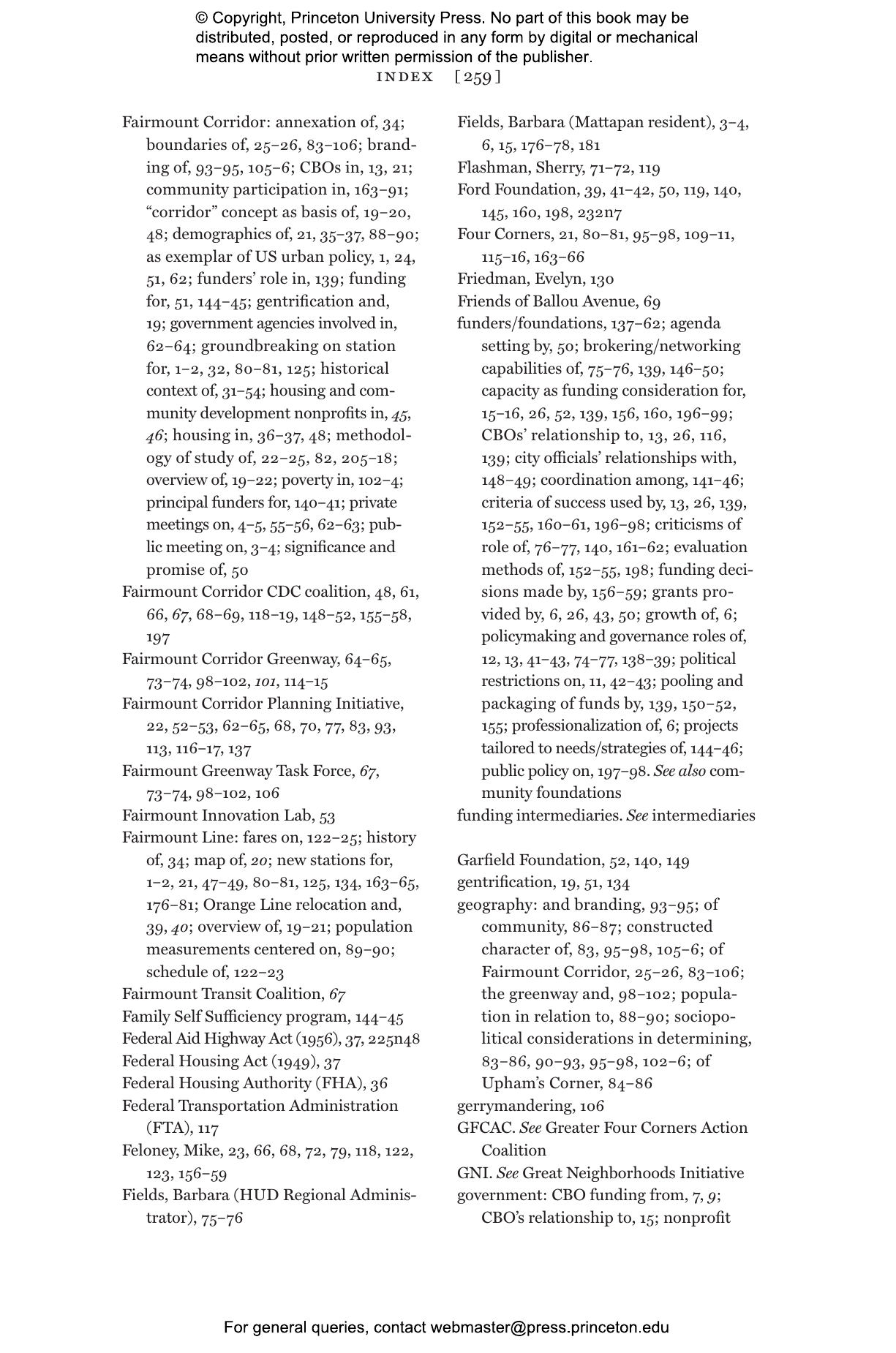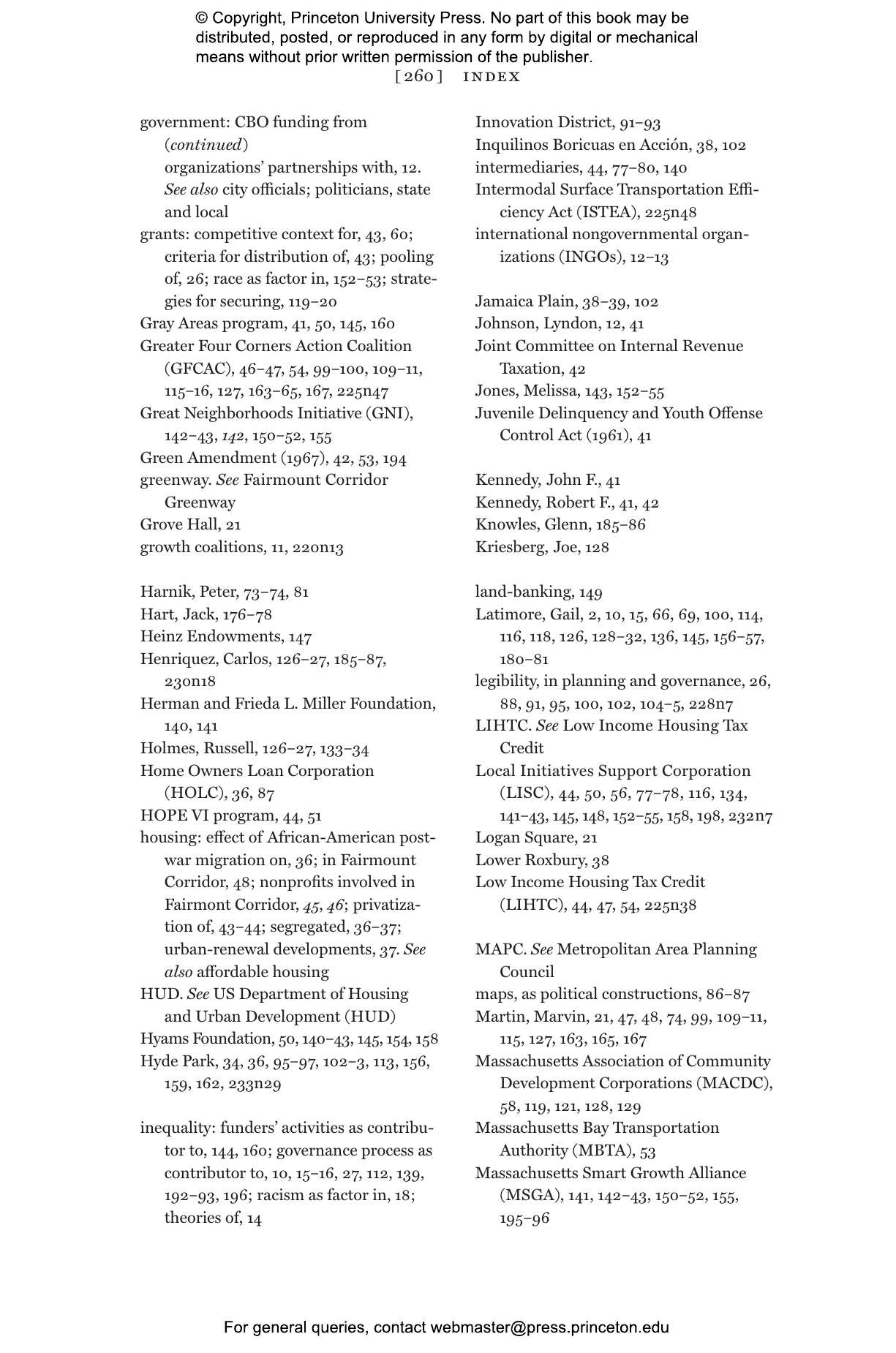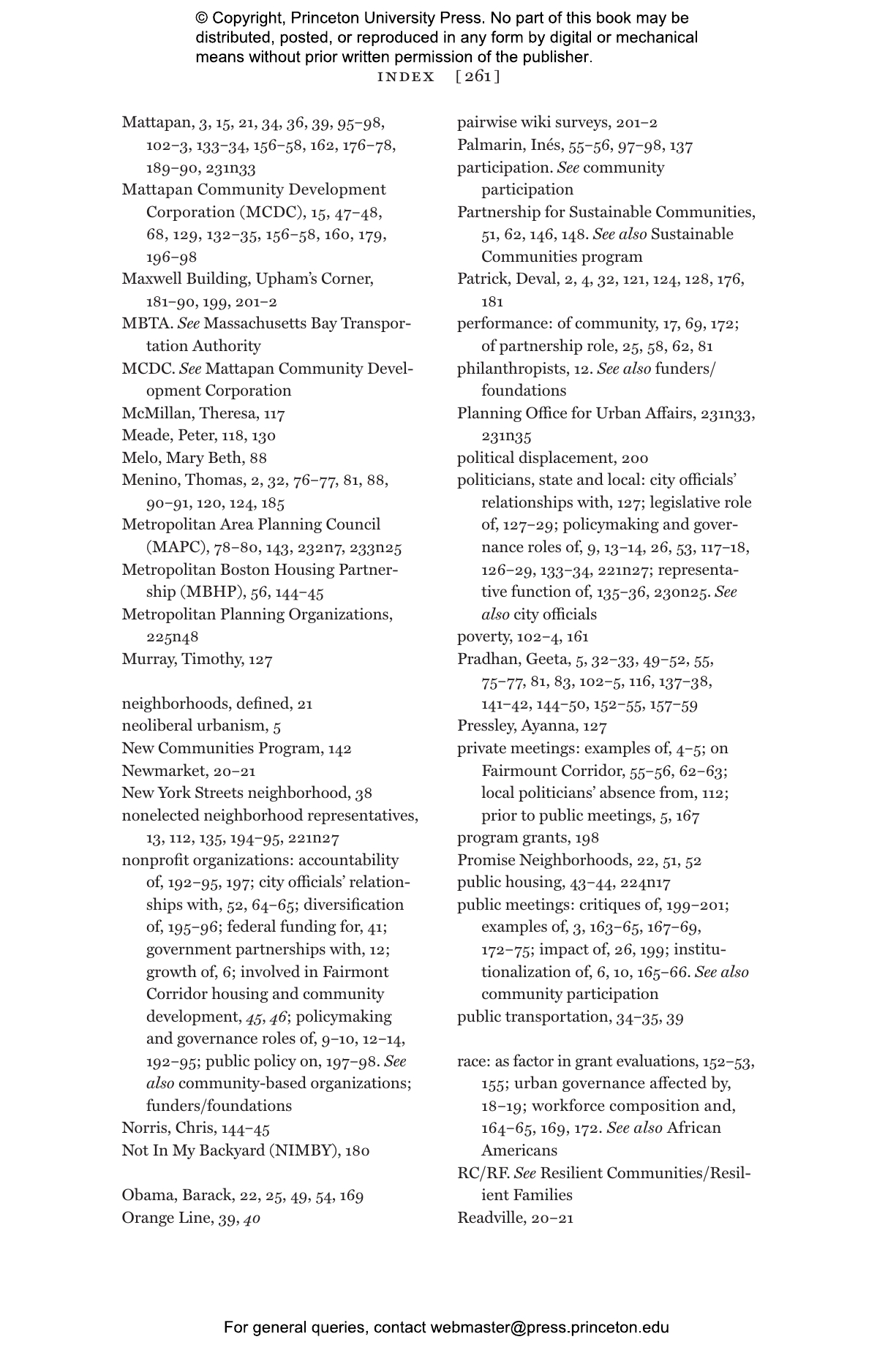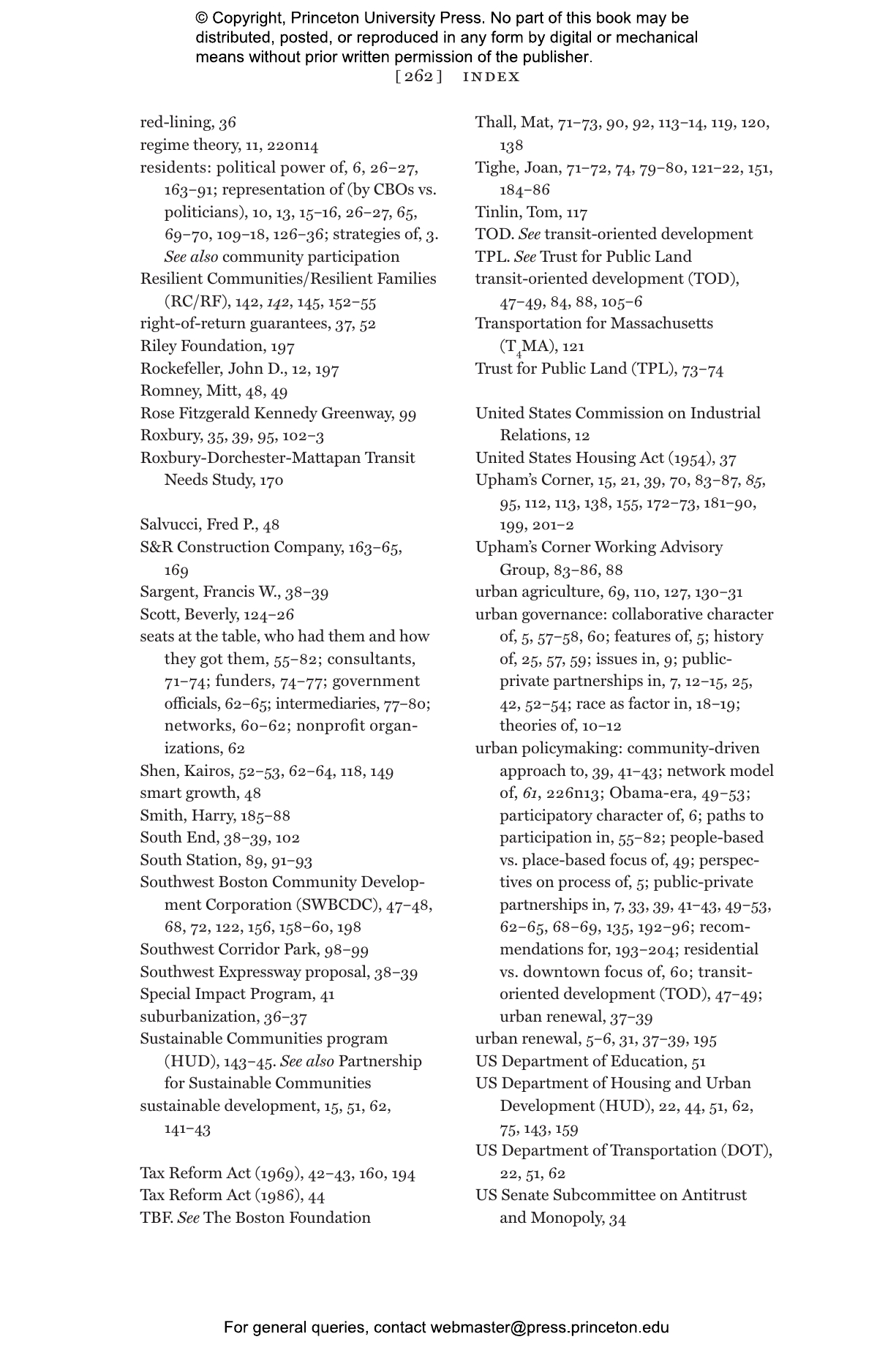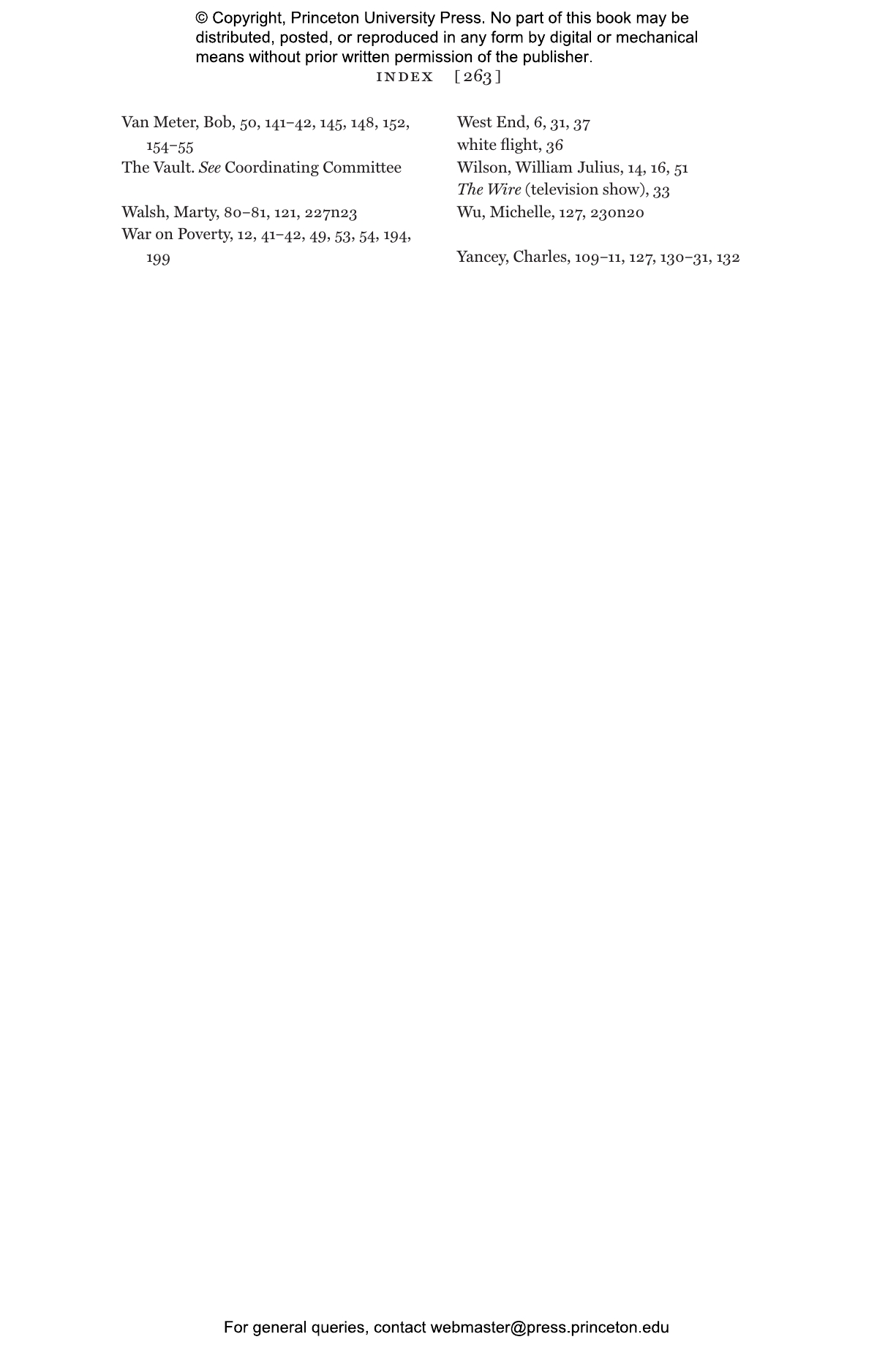Who makes decisions that shape the housing, policies, and social programs in urban neighborhoods? Who, in other words, governs? Constructing Community offers a rich ethnographic portrait of the individuals who implement community development projects in the Fairmount Corridor, one of Boston’s poorest areas. Jeremy Levine uncovers a network of nonprofits and philanthropic foundations making governance decisions alongside public officials—a public-private structure that has implications for democratic representation and neighborhood inequality.
Levine spent four years following key players in Boston’s community development field. While state senators and city councilors are often the public face of new projects, and residents seem empowered through opportunities to participate in public meetings, Levine found a shadow government of nonprofit leaders and philanthropic funders, nonelected neighborhood representatives with their own particular objectives, working behind the scenes. Tying this system together were political performances of “community”—government and nonprofit leaders, all claiming to value the community. Levine provocatively argues that there is no such thing as a singular community voice, meaning any claim of community representation is, by definition, illusory. He shows how community development is as much about constructing the idea of community as it is about the construction of physical buildings in poor neighborhoods.
Constructing Community demonstrates how the nonprofit sector has become integral to urban policymaking, and the tensions and trade-offs that emerge when private nonprofits take on the work of public service provision.
Jeremy R. Levine is assistant professor of organizational studies and, by courtesy, sociology at the University of Michigan. Twitter @Jeremy_Levine
"This well-researched book challenges assumptions regarding the existence of identifiable and unitary community interests and raises important questions about the unintended consequences of the increased reliance on this constellation of community development organizations."—Elizabeth Mueller, The Journal of the American Planning Association
"[Constructing Community] is an invitation to reconsider how we view who governs contemporary cities. . . . Levine’s insights are already enriching my conversations with resident leaders about local power dynamics and capacity-building for equitable development in the Boston area."—Laurie Goldman, Journal of Urban Affairs
"An excellent analysis of contemporary politics in the urban centers."—Armando Lara-Millán, American Journal of Sociology
"In Constructing Community, Levine deconstructs many urban planning buzzwords to reveal the complexities of neighborhood redevelopment in Boston. Participation, empowerment, representation, consensus, democracy, partnership, community: none of these ideas are easily accomplished, and none ensure fairness or equity. This book is a masterful examination of neighborhood reproduction and transformation and a must-read for urban scholars and practitioners alike."—Mary Pattillo, author of Black on the Block
"Constructing Community generates new insights into old debates about who governs. Showing how a space is manipulated, how boundaries are formed, and how community participation is managed, this book makes a valuable addition to the literature on urban inequality."—Patrick Sharkey, author of Uneasy Peace
"This impressive book serves as a prime example of effective research that treats organizations seriously as important actors in urban processes. Constructing Community will be recognized for its groundbreaking contributions to community and urban sociology, and specifically for how we understand the political sociology of urban governance."—Edward T. Walker, author of Grassroots for Hire
"Through an exceptional ethnographic account of the Fairmont Corridor development in Boston, this outstanding book breaks new ground in our understanding of urban politics and community organization. Every chapter reveals fascinating findings, important insights, and novel thinking."—Mark R. Warren, coauthor of Lift Us Up, Don’t Push Us Out!
